#Robbie Ross
Text


461 notes
·
View notes
Text



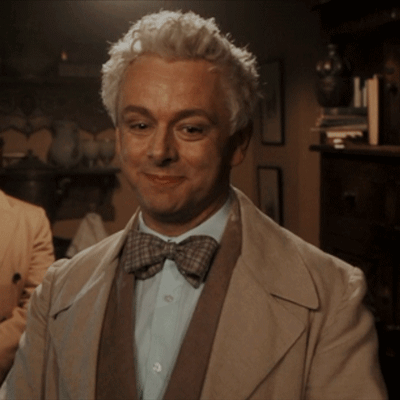
Today on: Do I Want To Be Him, Or Am I Attracted To Him?
#michael sheen#robbie ross#miles maitland#thorne jamison#aziraphale#wilde 1997#bright young things#law of attraction#good omens
596 notes
·
View notes
Photo
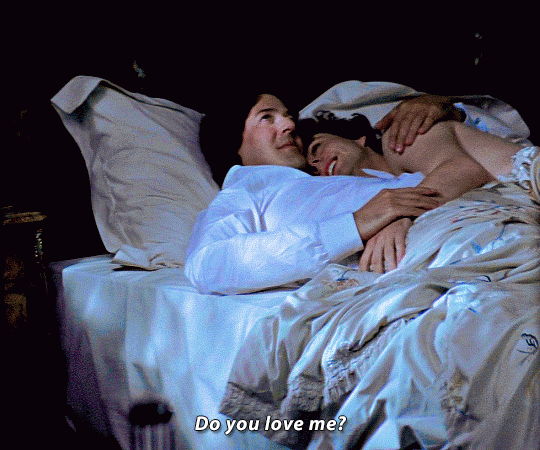
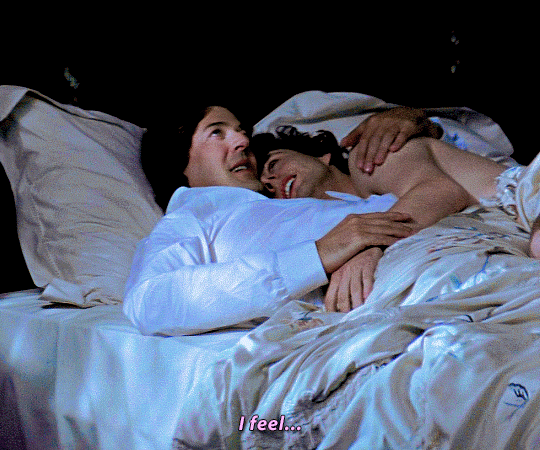
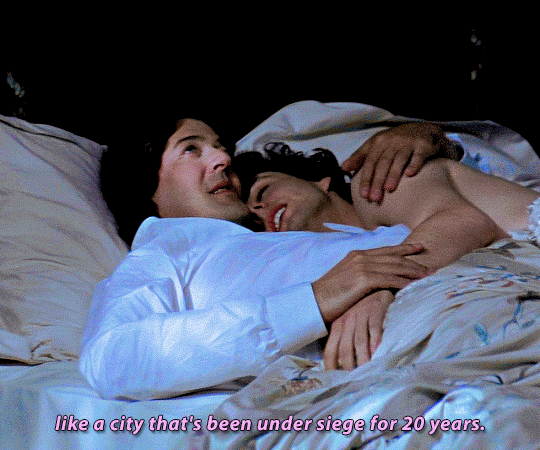
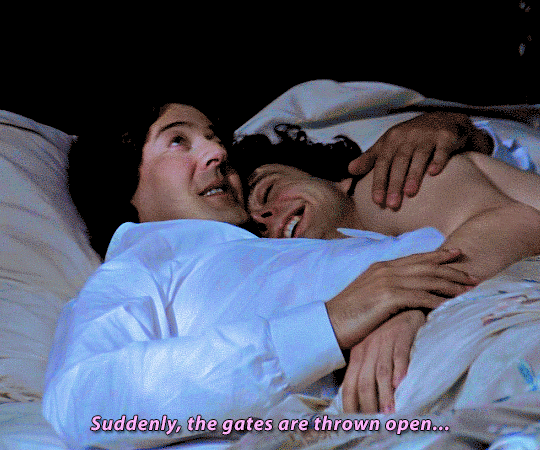

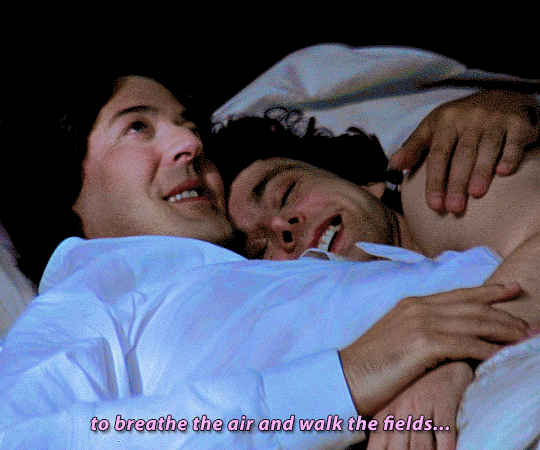
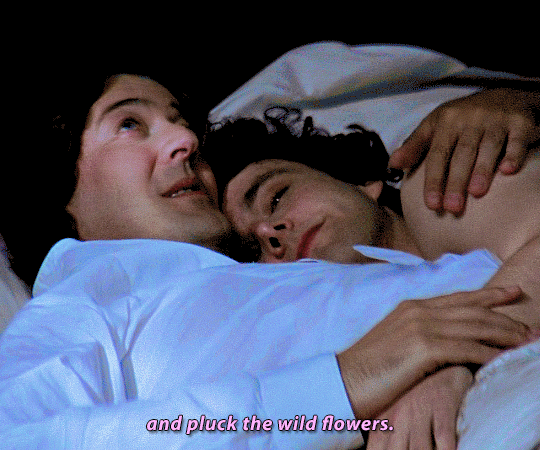
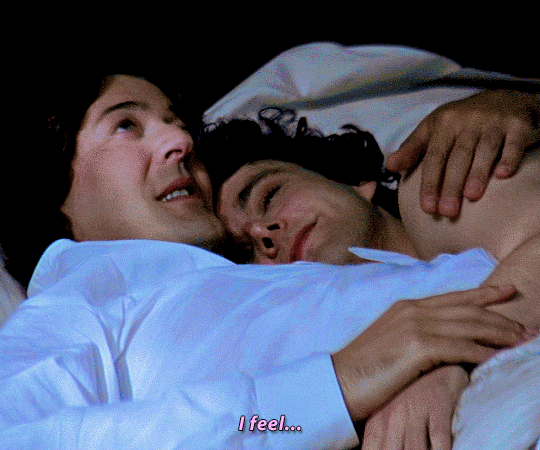
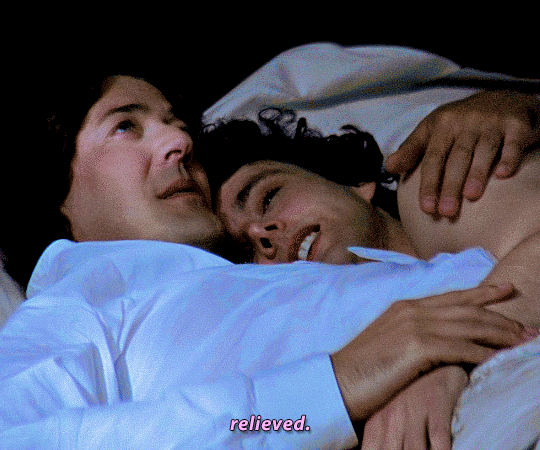
Stephen Fry and Michael Sheen in WILDE (1997)
#wilde#wilde 1997#wildeedit#oscar wilde#robbie ross#perioddramaedit#weloveperioddrama#gifshistorical#perioddramasource#filmtvdaily#lgbtedit#filmtvcentral#filmedit#userphotoshop#stephen fry#michael sheen#minee#gifset#userrobin#userdyamond#so is that a yes oscar#anyway michael sheen looks so angelic here
1K notes
·
View notes
Text
how does michael sheen Do That

#michael sheen#good omens#aziraphale#good omens 2#twilight#underworld#tron legacy#wilde#wilde movie#robbie ross#like bros a shapeshifter fr
353 notes
·
View notes
Text
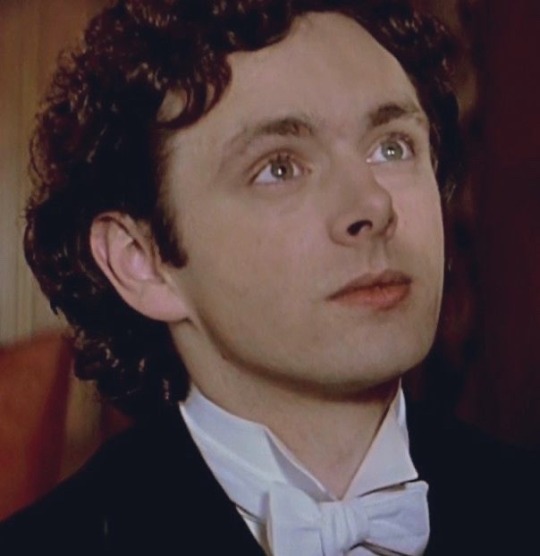
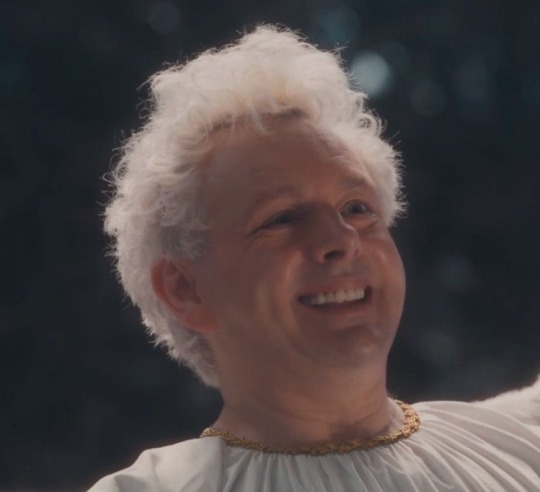
angelic angel
#my angel#they both deserved better#aziraphale#robbie ross#wilde 1997#good omens#good omens 2#michael sheen#good omens fandom#goodomens#parallels
188 notes
·
View notes
Text

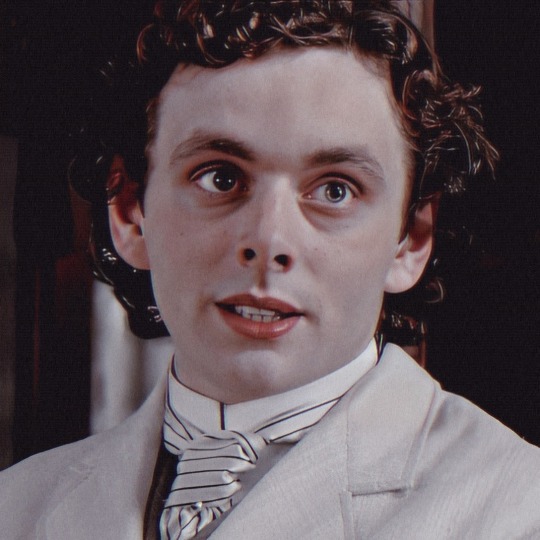
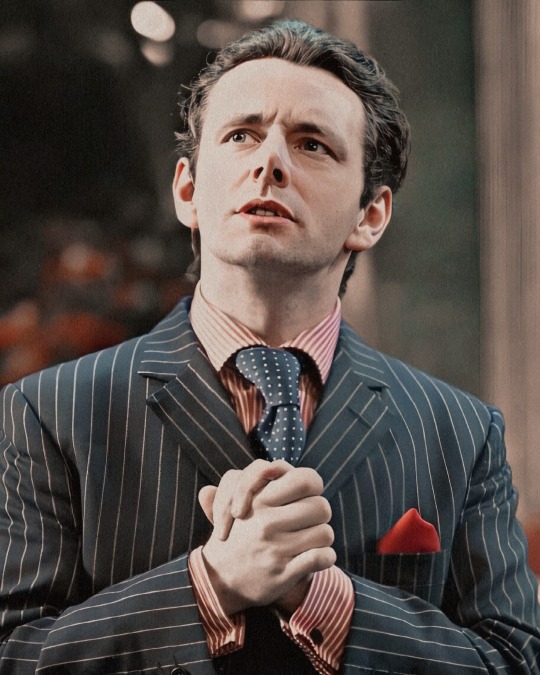





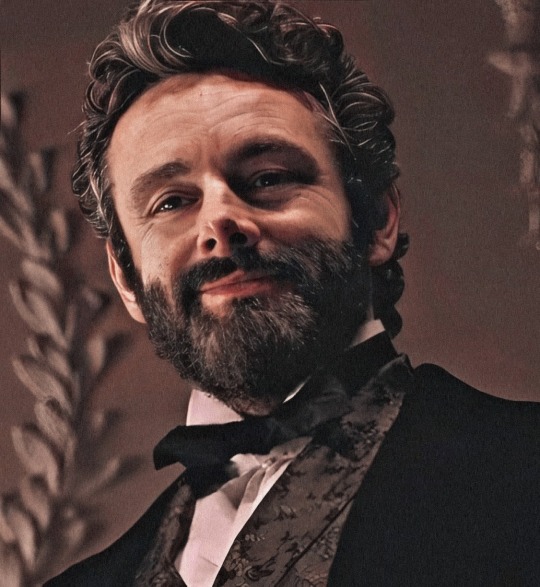

#michael sheen#random photos#prodigal son#dr. martin whitly#far from the madding crowd#william boldwood#wilde 1997#robbie ross#dead long enough#harry jones
106 notes
·
View notes
Text
Repentant Sighs And Voluntary Pains: Oscar Wilde and Robbie Ross 1895-1900
Foreword:
This is the first draft of a chapter in a longer biography of Robert ‘Robbie’ Baldwin Ross (1869-1918) that I am currently working on. I hope to share this with other people who are interested in Victorian queer history and the Wilde circle.
I started this project at the start of February, originally envisioning a short and sharp biography for LGBTQ+ History Month, because imo Robbie deserves to be remembered as a queer hero in his own right. But as I started writing I realised how much there were to his story, and how much emotions often lurked beneath Robbie’s deceptively dispassionate writing style, so the project very quickly ballooned beyond its intended scope. This essay biography will probably end up with 100-120 pages, and I am currently entertaining the idea of turning it into a book.
Part of why the project ballooned so drastically was the fact that Robbie was full of paradoxes.
He was at once incredibly talented and incredibly dismissive of his own talents. Oscar Wilde said he was ‘as cleaver as can be’ and everything he wrote was ‘admirable’; booksellers who had worked with him praised him for his impressive knowledge and inordinate memory; and even Alfred Douglas, who hated Robbie in his later years, conceded that he was ‘a man of brains and ability’. Yet he always thought little of his talents and erased himself from the narrative. He refused to write a biography for Wilde on the ground of his own lack of talent. And even at the 1908 dinner honouring his Herculean effort in reviving the Wilde estate, Robbie declared himself ‘inadequate’ and attributed the revival to others.
Similarly, he was at once unbelievably strong-willed and perplexingly vulnerable. He came out to his family at the age of 19 after being bullied out of Cambridge, and, unlike many of his contemporaries, he never denied his sexuality throughout his life. Moreover, he spoke up against sexism, antisemitism, and militarism, and protected a generation of young queer artists from a hostile world. Yet Oscar Wilde was his Achilles heel: between 1897 and 1900 he was hurt time and again, but he went back to Wilde every time; and in protecting Wilde’s posthumous legacy, he exposed his most vulnerable side to the viciousness of the world, which eventually chased him to his early grave.
I believe the key to unravelling much of the paradoxes is his love for Oscar Wilde. I believe he at once loved Oscar Wilde in the romantic sense and worshipped his art; but his love for the artist compelled him to forsake and denounce his romantic love. This was because, despite so many biographers had claimed that Robbie reconciled his Catholicism and his sexuality without difficulties, I believe he had in fact struggled silently with internalised homophobia against himself throughout his life. He most likely thought of himself as a ‘corrupting influence’ and bore the cross of the guilt for ‘corrupting’ the artist ever since 1895. This chapter tries to unpack the nature of such love, as well as the relationship between Wilde, Ross, and Douglas between 1895 and 1900.
Now, a couple of disclaimers:
This is very much unfinished. I tried to be as accurate factually as possible, but omissions/errors are inevitable at this stage, so pls lmk if you spot any. I am also still working my way through archives and biographies to plug gaps.
I tried my best not to led period-typical homophobia influence my own writing & terminologies, but it has not been easy, so if you find anything problematic in this please help me correct it.
The original manuscript has a million footnotes, and the finished product will be referenced. I decided not to put them in these posts for the sake of brevity, but I am more than happy to share my sources if you are interested.
Some part(s) of it can be a bit rambly, particularly since I found it very hard to control my urge to rebut many claims by Alfred Douglas and his biographers (which were often unsubstantiated, untrue, or maliciously misconstrued)… I really tried to give Douglas sympathetic treatment and benefit of the doubt, but the sheer amount of bile in his biographies and autobiographies made it very hard (I read over 500 pages by himself and three biographies about him with the intention of fathoming the depth of his character and finding every redeeming quality in him, but all of them had substantial revolting passages that made me incredibly uneasy. On top of that, although I am fully aware that he was most likely seriously traumatised, mentally-ill and needed help, I still found his vicious antisemitism and homophobia rather inexcusable)…In my revision I may try to soften some of my criticisms and structure them better. In the meantime apologies in advance if my criticisms of Douglas hurt anyone’s feelings.
Lastly, I sincerely love and admire Oscar Wilde’s writings so much, which makes me a bit apprehensive in writing about him or in analysing his work. De Profundis is my favourite prose work in English and it means a lot to me personally, so I feel personally inadequate in doing literary analysis on it…In other words the bits here about Wilde’s character & writings are very, very imperfect. I will try my best to polish & flesh them out in revisions, but I would sincerely appreciate any advice from fellow Wildeans.
Nothing can ever blot from my memory what you have suffered in defence of your writings […] I shall never forget what enemies your learning, and what envy your glory, raised against you. I shall never forget your reputation, so justly acquired, torn to pieces, and blasted by the inexorable cruelty of half-learned pretenders to science […] since it is decreed that your virtue shall be persecuted till it takes refuge in the grave, and even beyond that, your ashes perhaps, will not be suffered to rest in peace,—let me always meditate on your calamities, let me publish them thro' all the world, if possible, to shame an age that has not known how to value you.
I have hated myself that I might love you; I came hither to ruin myself in a perpetual imprisonment, that I might make you live quiet and easy.
—— Heloise to Abelard, Letter II
Later on I think everyone will recognise his achievements; his plays and essays will endure. Of course you may think, with others, that his personality and conversation were far more wonderful than anything he wrote, so that his written works give only a pale reflection of his power. Perhaps that is so, and of course t will be impossible to reproduce what is gone for ever.
—— Robert Ross, around 1900
I.
On 3 June 1918, Alfred Douglas indignantly declared in the Central Criminal Court that Oscar Wilde was ‘the agent of the devil in every possible way’ and ‘the greatest force of evil that has appeared in Europe during the last 350 years’. He was testifying on behalf of Noel Pemberton Billing, a proto-fascist politician sued for libel after spreading a conspiracy which alleged that there had been a circle of 47,000 ‘unpatriotic’ deviant women and clandestine homosexuals in England tied to Robert Ross and the ‘Wilde cult’ undermining the English war effort for the German Kaiser. Douglas’ testimony played right into the homophobia, wartime paranoia, and moralistic fervour of the English public. The jury, in turn, acquitted Billing and condemned Wilde.
Douglas would forswear his statement years later (as he had forsworn many other things in his life), but the harm done was hardly reparable. For Ross, who had fought endless battles to rehabilitate Wilde’s name and literary legacy for the past eighteen years, to see Wilde’s name dragged through the mud in the press again must have been excruciatingly distressing. Days after the acquittal of Billing, Ross wrote to Sir Charles Mathews (then the Director of Public Prosecutions), sardonically congratulating him on ‘the complete rehabilitation of your protégé, Lord Alfred Douglas’ and called him ‘the bastard of a mummer’. Meanwhile, to his friends Cecil Sprigge and Charles Ricketts, Ross lamented that the war-weary English public revelled in ‘kicking Oscar’s corpse’, and that he himself had been ‘used as a piece of mud’ in smearing Wilde’s name. Four months later, Ross died of heart failure, aged only 49.
Ross was a private man who left behind few traces of himself. Unlike Douglas, who wrote endless autobiographies regurgitating his narratives, Ross never told his side of the story. Therefore, we would never know whether behind the official cause of death of ‘gastritis caused by chronic bronchitis’ lied a broken heart. Was he tormented by the thought that his effort for the past eighteen years was rendered naught by the fresh wave of anti-Wilde furore? Might he have worried that Wilde’s name would forever be buried in the mud as a result of Douglas’ vendetta against himself? These we could only speculate. However, we do know that Ross had been seriously depressed, struggled to sleep, and prematurely aged for a long time before his death, due in no small part to Alfred Douglas incessant persecution over the past five years. It would also be reasonable to postulate that the uncharacteristic sarcasm of his letter to Sir Charles Mathews was the tip which belied an iceberg of agony.
Ross left almost everything in his possession to others upon his death. The Oscar Wilde estate was transferred to Cyril (then deceased) and Vyvyan Holland in its entirety. Most drawings in his possession were presented to the British Museum. To himself, he had reserved only a quiet little space in Wilde’s majestic tombstone. Unbeknownst to everyone, he had requested for such a secret little space to be built when commissioning Wilde’s famous Père Lachaise tombstone. In his will, written four years ago during his persecution by Alfred Douglas, Ross had directed that:
[…] my remains shall be cremated at Golders Green Crematorium with the ordinary burial offices of the Catholic and Roman Church. And I direct that my ashes shall be placed in a suitable urn and taken to Paris and buried in the tomb of the said Oscar Fingal O' Flahertie Wills Wilde. If however it should prove impossible to obtain the licence of the necessary authorities for this I direct that my ashes shall be scattered in Père Lachaise.
It was as if Ross was being the Heloise to Wilde’s Abelard. In that famous Medieval love story, much like how the illustrious writer Oscar Wilde was captivated by the 17-year-old Robbie Ross, Abelard, the brightest philosopher of his day, fell for his astute pupil Heloise, 19 years his junior. They were not only intellectual partners but also passionate lovers, yet their love transgressed the strictures of society and religion, thus scandals befell the brilliant Abelard. But Heloise’s love was unwavering even after Abelard’s ruin, not unlike how Ross steadfastly stood by Wilde after his imprisonment till the very end. In the end, much like how Heloise demanded to be buried with Abelard 22 years after his death, 23 years after Wilde’s death, Ross yearned for eternity alongside Wilde, beneath the same hallowed earth that cradled Heloise and Abelard.
Yet, unlike Heloise, whose effigy lay proudly beside Abelard's in Père Lachaise, Ross deliberately left no mark of his own on the final resting place he shares with Wilde. So whilst Heloise receives countless visitors’ songs and tears alongside Abelard, out of the hundreds of kisses imprinted on Wilde’s grave, none was intended for Ross; and most who wander through Père Lachaise remain unaware that Ross's ashes are silently guarding Wilde’s body.
Such self effacement was despite the fact that Ross had given up his eternal life with God for eternal rest with Oscar Wilde. As a devout lifelong Catholic, in directing his body’s cremation, Ross had denied himself resurrection. This is because it was not until 1963 that the Vatican finally conceded that cremation was ‘not opposed to the Christian religion' and ceased to deny Catholics wishing to be cremated their sacraments and funeral rites. Although at the time of Ross’s death, the Catholic Church sometimes acquiesced to cremation in practice as a result of WW1 (as reflected by the ‘the ordinary burial offices of the Catholic and Roman Church’ at Golders Green Crematorium), it was still quite possible that Ross never received the funeral rites which prepare a Catholic’s soul for afterlife. What had prompted such grave sacrifice? Perhaps he wanted to take up as little space as possible, lest his presence eclipse the master’s lustre. Perhaps it was his ultimate penance for his incurable sin of loving Oscar Wilde. Or perhaps he saw incineration as the only way to purify his body and to make himself worthy of eternal rest by the artist he had corrupted, just as Alexander Pope had written of Heloise:
Death, only death, can break the lasting chain;
And here, ev'n then, shall my cold dust remain,
Here all its frailties, all its flames resign,
And wait till 'tis no sin to mix with thine.
Yet, were it not for Ross, us contemporaries might not have known Oscar Wilde at all. Despite Nicholas Frankel’s brilliant effort to re-write Wilde’s final years as a saga of joy, love, and self-acceptance, there is no denying that Wilde died as a ruined bankrupt in 1900. Upon his death, he was a persona non grata in England whose name was synonym to scandal. And due to his bankruptcy, everything he had owned was automatically passed into the hands of the Official Receiver in Bankruptcy. This meant that none of the proceedings from Wilde’s works (if there were any at all) would go to his orphaned children. Furthermore, though Salomé was successful on the German stage and The Soul of Man under Socialism welcomed by the bookshelves of Nizhny Novgorod, Wilde’s works were deemed worthless in England: the complete rights to Lady Windermere’s Fan and The Importance of Being Earnest were sold off for the meagre sum of £100 each. Indeed, the Official Receiver had told Ross in 1901 that Wilde’s works ‘would never command any interest whatever’. But Ross’s labour of love worked miracles. In eight years, Ross had accomplished what none had thought possible: he had repaid all of Wilde’s debts, restored Wilde’s children’s rights over their father’s literary estate, and re-established Oscar Wilde in English literary history. Moreover, we owe much of our knowledge of Wilde and his works today to the 14-volume edition of Wilde’s Collected Works, compiled and published by Ross in 1908. That remarkable undertaking remains one of the most exhaustive collections of Wilde’s writings and had informed much of subsequent Wilde scholarships. Few in history had done so much yet said so little.
II.
In a cruel twist of fate, Oscar Wilde was sentenced to two years of imprisonment with hard labour on Robbie’s 26th birthday. On that very day, a great many homophobes paraded through the streets of London, celebrating the death of the ‘b-gger’. The fateful day of 25 May 1895 was to go down in history as a turning point in so many’s lives. For artists, it spelled the end of the short 1890s, the glorious age of aestheticism and decadence. For activists, it marked the beginning of a vicious conservative backlash towards everything deemed ‘deviant’, from men’s right to not be masculine to women’s right to vote.
For Robbie Ross personally, his 26th birthday spelled the death of ‘Robbie’, that witty, impulsive, kitten-like youth. Most accounts before 1895 described Robbie as an attractive boy looking younger than his age, but every account since described Ross as ‘an old man before his time’ worn down by care. And from the few portraits and photographs we have of Ross, we see that the spark of youthful wit so visible in his 1893 photograph was never again to be seen in any of his pictures since 1895. The change in appearance mirrored the shift in Ross’s literary career: after 1895, he rarely wrote without others demanding him to write. In May 1895, Edmund Gosse encouraged Ross to find solace in ‘the infinite resources of literature’ which Gosse believed was open to Ross ‘more than to most men’. But in his letter to Max Beerbohm five months later, Ross declared with a great deal of resignation that ‘I do not write now’. Indeed, nothing beyond criticism and satire came out of his pen in the next five years. As Bogle said, since that fateful year, it seemed as if Ross had made ‘a deliberate decision against writing what would make him successful’.
Ross was already a worn down man when he received information about Wilde’s sentence. Wilde withdrew his libel action against Queensberry to prevent Alfred Douglas from being called to the witness stand. This, however had led to a witch-hunt for all men with homosexual tendencies in England; as a consequence, Ross was exiled in Europe. The memory of Oscar’s arrest weeks ago was probably still very fresh in his mind. After all, he was with Oscar when he was arrested, and on that apocalyptic day, it was Ross who went to Wilde’s Tite Street home to pack his clothes for him. Ross most likely remembered painfully how he rushed from Tite Street to Bow Street police station carrying Oscar’s Gladstone bag, and fought his way through a homophobic mob ‘shouting indecencies’ at both Wilde and himself. He was hoping to see Oscar for one more time before his inevitable imprisonment, only to be cruelly denied permission to even leave the bag with him. Afterwards, Ross went to his mother’s place and broke down in tears, and according to his former boss W.E. Henley, Ross was heartbroken and fell ill. Despite his illness, however, Ross stayed on for a couple more days after Wilde’s arrest and returned to Wilde’s Tite Street home multiple times to collect incriminating manuscripts.
We do not know exactly why Ross ceased to pursue his own literary career after 1895. Perhaps, as Bogle postulated, he ‘could not help feeling emotionally responsible’ for Wilde’s downfall, and his ‘lack of ambition for himself’ was a ‘subconscious punishment for the disaster he felt that he had brought to Wilde’. Or perhaps, as Borland suggested, Ross had realised that his real talent was in supporting artists. Regardless, because Ross’s life from 1895 onwards irrevocably revolved around Oscar Wilde, we would never know what Ross could have become on his own terms as a literary figure. He would spent the remaining 23 years of his life as Wilde’s personal secretary, part-time lover, and full-time literary executor; and he would burnt his own life to keep the flame of Oscar Wilde’s literary legend.
III.
Love weaves itself into the human experience in myriad forms as a result of our complex nature. Anthropologists have uncovered that at the heart of love lie three primary brain systems shaping our journey toward mating and reproduction. These systems orchestrate the dance of physical attraction, the depths of romantic affection, and the enduring bonds of profound attachment. Yet, these strands of love do not always intertwine seamlessly. It is therefore entirely feasible to find oneself deeply bonded to one, while the flames of romantic desire burn for another, and seek fulfilment of desires elsewhere. Such multiplicity of biological pathways has set the stage for many romantic tragedies through the ages.
The tragedy of Wilde and Ross found its crescendo within the grey walls of Reading Gaol. It was in confinement that Wilde’s affection for Ross reignited with unprecedented depths of passion. Perhaps prison had made Robbie beautiful. Perhaps against the backdrop of 'weeping prison walls' and the dual spectres of ‘lean hunger and green thirst’, memories of Robbie came to be cast in ever more luminous light, as every beautiful moment was relished time and again, and each time made more beautiful by the power of imagination. As evidenced by that famous passage in De Profundis, to the imprisoned, even a trivial gesture could be exquisitely beautiful and inspire extraordinary love:
Where there is Sorrow there is holy ground. Some day you will realise what that means. You will know nothing of life till you do. Robbie, and natures like his, can realise it. When I was brought down from my prison to the Court of Bankruptcy between two policemen, Robbie waited in the long dreary corridor, that before the whole crowd, whom an action so sweet and simple hushed into silence, he might gravely raise his hat to me, as handcuffed and with bowed head I passed him by. Men have gone to heaven for smaller things than that. It was in this spirit, and with this mode of love that the saints knelt down to wash the feet of the poor, or stooped to kiss the leper on the cheek. I have never said one single word to him about what he did. I do not know to the present moment whether he is aware that I was even conscious of his action. It is not a thing for which one can render formal thanks in formal words. I store it in the treasury-house of my heart. I keep it there as a secret debt that I am glad to think I can never possibly repay. It is embalmed and kept sweet by the myrrh and cassia of many tears.
This Robbie, painted by Wilde’s imagination, symbolised everything he had longed for in prison, and everything he had missed from the outside world: Robbie was a safe harbour which promised comfort, security, acceptance, and unconditional love.
Croft-Cooke contended that Wilde ‘dragged in’ Ross’s name in De Profundis because he was ‘naïf enough to suppose that Bosie might feel some envy for Ross’, so he leveraged Ross’s ‘jealous longing to appropriate him’ to make Bosie jealous. And even biographers sympathetic towards Ross, such as Edra Bogle, believed that Wilde had mentioned Robbie only to ‘make Bosie seem even worse by contrast’. This interpretation, I believe, commits the ‘supreme vice’ of shallowness by entirely misjudging the nature of De Profundis. Though much ink had been spilled in debates over the nature of De Profundis, most serious scholars nowadays agree that it was ‘never just a letter’. For one, in 1897 Wilde instructed Ross to have the manuscript copied without telling Alfred Douglas, alluded to potential publication posthumously, and hesitated to send the letter to Alfred Douglas. Moreover, it was one of Wilde’s best proses which contained exquisite passages on aesthetics, theology, and philosophy. To reduce it to a love letter intended to incite jealousy, therefore, not only overlooks much of the historical contexts, but also does much injustice to the beautiful text itself. The piece, as Lee contended, is best read as Wilde’s mourning of the death of ‘Oscar Wilde’ the literary personality, an exercise to exorcise his own demons in order to reclaim and perhaps recreate his sense of self. Thus both ‘Bosie’ and ‘Robbie’ in De Profundis are essentially symbolic characters onto whom Wilde projected himself: ‘Bosie’ mirrored the ‘Oscar Wilde’ in his ‘Neronian hours’, when he was ‘rich, profligate, cynical, materialistic’; ‘Robbie’, in contrast, embodied the simple, tranquil, pensive, and creative future beyond prison which he had envisioned for himself.
Wilde was visibly torn between the two versions of himself after his release. On the one hand, he desired to reinvent himself as an artist by living a healthy and wholesome life. As declared at the end of De Profundis:
I hope to go at once to some little seaside village abroad with Robbie and More Adey […] I hope to be at least a month with my friends, and to gain, in their healthful and affectionate company, peace, and balance, and a less troubles heart, and a sweeter mood. I have a strange longing for the great primeval things, such as the Sea, to me no less of a mother than the Earth […] I feel sure that in elemental forces there is purification, and I want to go back to them and live in their presence.
The longing for rebirth and restoration was reiterated time and again in many of his post-prison letters. In his letter to Selwyn Image on 3 June, for instance, he wrote that he was ‘thoroughly ashamed of having led a life quite unworthy of an artist’, and that ‘if I have good health, and good friends, and can wake the creative instinct in me again, I may do something more in art yet’. Similarly, he told Mrs Stannard that France, the ‘mother of all artists’, had given hm ‘asile’ and enabled him to recover, and that he wished to live thus in ‘solitude and peace’.
However, on the other hand, almost immediately after release, his old luxuriating taste came back to haunt him. On 27 May 1897, for instance, he told Reginald Turner that:
Robbie detected me at Dieppe in the market place of the sellers of perfumes, spending all my money on orris-root and the tears of the narcissus and the dust of red roses. He was very stern and led me away. I have already spent my entire income for two years.
The story was probably as much truth as it was trope. Orris, or the roots of iris flowers, was harvested by the ancient Greeks and Romans for essential oil. The flower carried strong homoerotic connotations: for one, some had argued that in Greek mythology, Apollo had created iris (instead of what we know as Hyacinth today) in remembrance of Hyacinthus, the beautiful youth who died for him; moreover, the flower itself was turned into a symbol for queerness over the 20th century, not least because it had derived its name from the Greek goddess of the rainbow. The ‘tears of the narcissus’, likewise, was a thinly-veiled homoerotic reference: one may recall that Wilde had compared Alfred Douglas with narcissus after their first night together. Thus the flowers were most likely at once flowers of perfumery and flowers of youthful beauty, and the lavishing of the ‘income for two years’ probably referred to not only money but also his spiritual developments over his two years of imprisonment.
It was befitting, then, in the story, it was ‘Robbie’ who sternly led him away from the marketplace of perfume-sellers. He had canonised ‘Robbie’ in Reading Gaol, and he pleaded as ‘St Robert of Phillimore’ for salvation from himself. In such pleadings the ‘Robbie’ in his imagination and the actual person Ross became indistinguishable. In his letter dated 28 May 1897, Wilde wrote that:
For yourself, dear Robbie, I am haunted by the idea that many of those who love you will and do think it selfish of me to allow you and wish you to be with me from time to time. But still they might see the difference between your going about with me in my days of gilded infamy - my Neronian hours, rich, profligate, cynical, materialistic - and your coming to comfort me, a lonely dishonoured man, in disgrace and obscurity and poverty. How lacking in imagination they are! If I were rich again and sought to repeat my former life I don't think you would care very much to be with me--I think you would regret what I was doing: but now, dear Robbie, you come with the heart of Christ; and you help me intellectually as no one else can or ever could do--you are helping me to save my soul alive--not in the theological sense, but in the plain meaning of the words: for my soul was really dead in the slough of coarse pleasures: my life was unworthy of an artist: you can heal me and help me--no other friend have I now in this beautiful world. I want no other. Yet I am distressed to think that I shall be looked on as careless of your own welfare and indifferent to your own good. You are made to help me. I weep with sorrow when I think how much I need help, but I weep with joy when I think I have you to give it to me.
I know you love me, but I want to have your respect, your sincere admiration, or rather, for that is a word of ill omen, your sincere appreciation of my effort to recreate my artistic life. But if I have to think that I am harming you, all pleasure in your society will be tainted for me. With you, at any rate, I want to be free of any sense of guilt--the sense of spoiling another's life. Dear Robbie, I couldn't spoil your life by accepting the sweet companionship you offer me from time to time. It is not for nothing that I named you in prison St. Robert of Phillimore. Love can canonise people. The saints are those who have been most loved.
I made only one mistake in prison in things that I wrote of you or to you ....My poem should have run: “When I came out of prison you met me with garments, with spices, with wise counsel. You met me with Love." Not others did it, but you. I really laugh when I think how true in detail the lines are.
‘Robbie’ was to be his saviour from despair, and he hope to be reborn as an artist through loving ‘Robbie’. But such love had little regard for Ross the actual person: Wilde wanted ‘Robbie’ to save him from himself, fully aware that he could well harm Ross by demanding salvation from ‘Robbie’. Yet, in the end, instead of trying to bridge the yawning gap between his imaginary ‘Robbie’ and the actual Ross, he merely prayed that ‘St Robert of Phillimore’ may absolve him from ‘any sense of guilt’ for ‘spoiling another’s life’.
Wilde professed much of the similar affections for Ross three days later. However, by then, he had already begun to show signs of yielding to temptations, or rather to his former self. He wrote that:
I feel that Berneval is to be my home. I really do. […] It is also extraordinary that I knew Berneval existed and was arranged for me.
[…]
Dear Robbie, I wish you would be a little more considerate, and not keep me up so late talking to you. It is very flattering to me, and all that, but you should remember that I need rest. Good night. You will find some cigarettes and some flowers by your bed-side. Coffee is served below at eight o'clock. Do you mind? If it is too early for you, I don't at all mind lying in bed an extra hour. I hope you will sleep well. You should, as Lloyd is not on the verandah.
I adore this place. The whole country is lovely, and full of forest and deep meadow. It is simple and healthy. If I live in Paris I may be doomed to things I don't desire. I am afraid of big towns…I am frightened of Paris — I want to live here.
[…]
Please send a Chronicle to my wife, just marking it, and if my second letter appears, mark that. Also one to Mrs. Arthur Stannard……I have no one but you, dear Robbie, to do anything……
Here, on the one hand, he was desperately trying to bring himself to love Berneval; on the other hand, however, his pre-1895 self was already rearing its head and luring himself to Paris where temptations filled the streets. This made his declarations of love of Berneval sound all the more like desperate attempts at autohypnosis. Thus, it should be entirely unsurprising that merely two months later, Wilde described Berneval as unbearably ‘black and dreadful’ which made him ‘quite suicidal’. Alongside his rapidly waning love for Berneval’s natural tranquility was probably his increasingly wavering love for ‘Robbie’, which made it all the more necessary for him to keep himself up late to pen contentless love letters to Ross.
Such love was expressed in more explicit terms on 6 July 1897:
I long to see you. When are you coming over? I have a lovely bedroom for More, and a small garret for you, with my heart waiting in it for you.
But at the same time as he told Ross that his heart was waiting in the bedroom for him, Wilde was already making plans of eloping with Alfred Douglas to Naples. By that point, the post-prison persona he had envisioned for himself in Reading Gaol had already been eclipsed by the revival of the Neroian Oscar Wilde.
I largely concur with Laura Lee on the interpretation that Wilde loved Douglas because Douglas seemed to him sin personified; thus he was drawn to ‘Bosie’ ‘not in spite of his flaws but because of them’. He was ‘rapturously horrified’, and he wanted to experience through ‘Bosie’ the ‘heights and depths of life’, and to burn both pleasure and pain with ‘a gemlike flame’. However, for an author so adept in manufacturing symmetries, Lee missed the crucial symmetry between Wilde’s ‘delight in decadence’ with Douglas and his desire for transcendence in his letters to Ross. The oversight is all the more curious because Lee’s referencing of Wilde’s own reflection on his life as ‘a harmony of two extremes’, which considered ‘artistically […] perfect’. I believe this confession offers a profound insight into Wilde's inner conflict: his heart was torn between 'Bosie' and 'Robbie,' the dual muses in his imagination, which inevitably led him to hurt both Douglas and Ross.
IV.
We could not ascertain the level of intimacy Wilde and Ross shared during these months; however, it is nevertheless safe to presume that physical intimacy did accompany the fleeting revival of intense romantic affections For one, Robert Sherard alleged that during Ross’s visit to Berneval in August 1897, he accidentally saw Wilde and Ross in a passionate sexual embrace through undrawn curtains one morning, which had let him to contend years later that ‘there is no doubt — and I am speaking from absolute knowledge — that it was [Ross] who… dragged Oscar back into the delights of homosexuality’. Alfred Douglas likewise wrote in 1932 that ‘it is an absolute fact that it was Ross who at Berneval dragged Oscar back to homosexual practices. Oscar told me this himself… Harris told me at Nice that Ross had told him the same story.’ On top of which, when writing to Leonard Smithers in this period, Wilde said that ‘He [Robbie] can ride everything, except Pegasus’. The thinly-veiled innuendo strongly corroborated the existence of sexual intimacy.
McKenna characterised their relationship as ‘Oscar was in need of comfort, and Robbie obligingly comforted him’. He also claimed that the intimacy between Wilde and Ross was merely ‘sex as consolation’ but was not love and could never ‘scale the same emotional heights as Oscar’s love for Bosie’. But the claim that Ross offered up his own body only to comfort Wilde was not only unsubstantiated but also profoundly degrading: he was not a passive object providing cheap pleasure or consolation but a human subject possessing the agency to love. Moreover, given that Ross very likely harboured a profound sense of guilt for corrupting Wilde and leading him to his downfall by introducing him to homosexual practices, it is highly unlikely that he would casually offer his body as a pastime.
The more plausible conjecture, I believe, was that Ross fell deeply in love with Wilde despite his every effort to prevent a second corrupting of Oscar Wilde by his own love. Ross’s responses at the time to Wilde’s love letters are now largely lost in history, perhaps because Wilde had no habit of keeping letters, or perhaps because Ross (or his family members) had burnt them at some point. However, Ross’s unfinished and unpublished 1918 manuscript, which was supposed to be a preface to a collection of Wilde’s letter to him, gave hints of the depth of his affections. Recalling the day 23 years ago when he welcomed the newly-released Wilde off the shore of Dieppe, Ross wrote:
We met them [Wilde and Adey] at half past four in the morning, a magnificent spring morning such as Wilde anticipated in the closing words of De Profundis. As the steamer glided into the harbour Wilde’s tall figure, dominating the other passengers, was easily recognised from the great crucifix on the jetty where we stood. That striking beacon was full of significance for us. Then we began running to the landing stage and Wilde recognised us and waved his hand and his lips curled into a smile. His face had lost all its coarseness and he looked as he must have looked at Oxford in the early days before I knew him and as he only looked again after death. A good many people, even friends, thought his appearance almost repulsive, but the upper part of his face was extraordinarily fine and intellectual.
There was the usual irritating delay and then Wilde with that odd elephantine gait which I have never seen in anyone else stalked off the boat. He was holding his hand a large sealed envelop. ‘This, my dear Bobbie, is the great manuscript about which you know. More has behaved very badly about my luggage and was anxious to deprive me of the blessed bag which Reggie gave me.’ Then he broke into great Rabelaisian sort of laughter. The manuscript was of course De Profundis.
[…]
Wilde talked until nine o’clock when I insisted on going to lie down. We all met at twelve for déjeuner, all of us exhausted except Wilde. In the afternoon we drove to Arques[-la-Bataille] and sat down on the ramparts of the castle. He enjoyed the trees and the grass and country scents and sounds in a way I had never known him do before, just as street-bred child might enjoy them on his first day in the country: but of course there was an adjective for everything — ‘monstrous’, ‘purple’, ‘grotesque’, ‘gorgeous’, ‘curious’, ‘wonderful’. It was natural to Wilde to be artificial as I have often said and that is why he was suspected of insincerity. I mean when he wrote of serious things, of art, ethics or religion, of pain or of pleasure. Wilde in love of the beautiful was perfectly, perhaps too, sincere and not the least of his errors was a suspicion of simple things. Simplicity is one of the objections he urges against prisons.
During that day and for many days afterwards he talked of nothing but Reading Prison and it had already become for him a sort of enchanted castle of which Major Nelson was the presiding fairy. The hideous machicolate turrets were already turned into minarets, the very warders into benevolent Mamelukes and we ourselves into Paladins welcoming Coeur de Lion after his captivity.
In stark contrast to his earlier prefaces, which were concise and impersonal, this unfinished piece unfolded with elaborate detail and a deeply heartfelt touch. The first half of the extract reads more like a smitten seventeen year old savouring his love at first sight than a middle-aged man recalling his reunion with a friend from a respectable remove. The vivid depictions of Wilde's tall figure ‘dominating the other passengers’, his ‘odd elephantine gait’, and his ‘great Rabelaisian laughter’ all had a level of raw, animalistic vitality. Subtly, they reveal a deep-seated, almost primal attraction that defied the passage of time, an allure as impossible for Ross to resist in 1918 as it was back in 1897. In weaving his memories, Ross imbued them with such tender details that one can almost imagine a blushing author as he was committing these words to paper. His recounting of Wilde's ‘extraordinarily fine and intellectual’ visage on that ‘magnificent spring morning’ carries the freshness as if but a moment had slid by. Moreover, even after the elapsing of 23 long years, he still remembered with painfully loving precision how Wilde's lips 'curled into a smile’ under the soft, early light of half-past four in the morning, a detail so heartfelt and personal that it defied the yawning chasm of time. It is as though, despite his utmost efforts to restrain and conceal his profound affection and desire, they inevitably seep through his prose and permeated the pages.
The heartfelt affection, however, was heavily tinged with guilt and remorse. Noticeably, Ross described Wilde at his most ‘fine and intellectual’ as how ‘he must have looked at Oxford in the early days before I knew him and as he only looked again after death’. It was as if Ross believed his very presence had cast a shadow over Wilde's luminance, as if Ross saw Wilde as Adam and himself Eve, the snake, and the apple all at once. Thus, as the narrative unfolded, Ross erased himself from the second half of the extract. He affectionately described from the perspective of a silent onlooker how Wilde had ‘enjoyed the trees and the grass and the country scents and sounds in a way I had never known him do before’, the string of ‘and’s hinting at his ‘childish’ curiosity and spontaneity. In that moment, in Ross’s eyes, Wilde was free, untethered by his own corrupting influence; and he himself watched over his return to the Garden before the fall from a distance with almost-maternal affection. Ross reemerged in the narrative not as a participant but as a protector, who removed himself from memory and defended Wilde’s sincere love for beauty to the reader. Perhaps this was Ross’s subconscious hope: to cleanse his influences from Wilde’s life and legacy, to piously marvel at Wilde’s artistic brilliance from a distance, and to walk silently in the shadows as a loyal, protective spirit.
This unfinished manuscript was perhaps Ross’s rawest confession, penned without the chance to polish or pare down his own voice or longing from the narrative. It revealed the tragic conflicts which underpinned Ross’s life: he wanted to erase himself from Wilde’s life at the same time as he wanted Wilde with every fibre of his being; and he believed himself to be the fatal temptation for Wilde but could not help himself from yielding to the temptation of Wilde. In a way, this was the dilemma between his faith and his sexuality he encountered at the dawn of his life reenacted at the dusk: he had internalised the idea that homosexuality was to be a corrupting sin but could not deny his nature, thus he walked with the cross of repentance on his back his entire life.
The most tragic aspect with the second ‘fall’ after Reading was that the final straw before Ross gave in to his own romantic desires was possibly a promise of a life together. After breaking his promises to Ross and abandoning him for Alfred Douglas, Wilde wrote to Ross on 21 September 1897 saying ‘I could have lived all my life with you’. Moreover, in his 2 January 1899 letter rejecting the idea of a second marriage, Wilde suggested that Ross would want him to marry ‘some sensible, practical, plain, middle-aged boy’ —— a description which eerily mirrored Ross himself. Though it might appear as mere coincidence, but reading these words together with his 1897 letter, they seem to hint at profound commitments in the nascent days of their reunion after prison.
But when did the love begin? As argued, I am not quite convinced by the claim that Ross was hopelessly in love with Wilde ever since 1886; rather, from the few textual evidence we have of him, I believe that Ross’s love was most likely rekindled by sorrow and remorse after witnessing the pain of imprisonment taking its toll the man he had admired and once loved. After the prison sentence, in 1895, Ross made multiple trips back to England at great risks to himself. According to Bogle, on 24 September 1895 Ross visited the building ‘where Wilde waited while the Registrar decided to adjourn bankruptcy proceedings for seven weeks’. He then came back again on 12 November 1895, only to wait patiently in the corridors of the Court of Bankruptcy for a glimpse of Wilde, and to silently but solemnly raise his hat to Wilde amidst a jeering crowd. Before the bankruptcy proceedings, Ross had ‘harried and pleaded’ in his attempt to raise £2000 to pay back Wilde’s debt. He went so far as to write to his former Cambridge tutor Oscar Browning for money, but, partly due to Alfred Douglas’ inability of unwillingness to contribute, Ross’s effort fell £400 short, Wilde went bankrupt. Adding insult to injury, the Marquess of Queensberry (Alfred Douglas’ father, the man who sent Wilde to prison) became one of Wilde’s primary creditors upon his bankruptcy.
On that very day, he had a brief interview with Oscar. From which, Ross recorded that:
Physically he [Wilde] was much worse than anyone had led me to believe. Indeed I really should not have known him at all . . . His clothes hung about him in loose folds and his hands are like those of a skeleton.
He further remembered that the only subject on which Oscar had spoken calmly without breaking down was death. His shock and despondence at the ruin of the once great artist was palpable.
He then visited Wilde in prison again in May 1896. His letter to More Adey after the visit repeated many of the same themes. In the letter, Ross wrote that:
Then Oscar appeared. He is much thinner, is now clean shaven so that his emaciated condition is more apparent. His face is dull brick colour. (I fancy from working in the sun in the garden). His eyes were horribly vacant, and I noticed that he had lost a great deal of hair (this when he turned to go and stood in the light). He always had great quantities of thick hair, but there is now a bald patch on the crown. It is also streaked with white and grey. You must allow perhaps for my exaggeration but I try not to do so and I am writing from pencil notes taken down immediately after leaving the prison. I did not break down at all, although this the worst interview I have had with Oscar[…] I did not know he[Sherard] gave way to exhibitions of feeling, though I know he feels things of course, as much perhaps as I do […] He[Oscar] cried the whole time and when we asked him to talk more he said that he had nothing to say and wanted to hear us talk. That as you know is very unlike Oscar.
His attempt to be calm and judicious barely belied his pain. The letter reads like a string of consciousness spilled onto paper, where attempts at detached brevity inevitably give way to detailed and heart-rendering accounts of Wilde’s physical decay. For one, whilst claiming that he ‘did not break down at all’, Ross confessed that the this harrowing encounter had shaken him to the core, and that Sherard’s breakdown was barely on par with his own pain. Moreover, his description of Wilde as a shadow of the man he had once known danced between maintaining a facade of control and the inevitable surrender to grief. It was as if he was desperately trying to reign in his thoughts and tame his emotions.
He further wrote that:
I firmly and honestly believe apart from all prejudice that he is simply wasting and pining away, to use the old cliché he is sinking under a broken heart. […] Each person has his view as to what constitutes a decayed mind, but if I were asked about Oscar before a commission, I should say that 'Confinement apart from all labour or treatment had made him temporarily silly, that is the mildest word that will describe my meaning. If asked whether he was going to die. It seems quite possible within the next few months, even if his constitution remained unimpaired, but for the causes that wives and husbands die shortly after each other, for no particular cause or men who have lost all their money or their '10 o'clock business' and young girls whose engagements have gone wrong. I should be less surprised to hear of dear Oscar's death than of Aubrey Beardsley's and you know what he looks like.
Here, in the shadow of Wilde’s decline, Ross's heartache is again palpable. Wilde’s deterioration was described as a gradual erosion of character evoking his introduction to homosexuality, which Ross most likely believed to be the beginning of his corruption. The phrase "sinking under a broken heart" further deepens the tragedy, evoking the downfall of something majestic now in ruins.
Yet, amidst this despair, Ross clinged to a sliver of hope: he insisted that Oscar’s mental decay was but temporary silliness induced by gaol fever, suggesting the possibility of recovery and restoration. Here, however, this hope was shadowed by the looming spectre of Wilde’s death, making Ross’s optimism appear fragile. It was telling that the analogies Ross drew were all disasters befalling respectable heterosexual families. This resonated with the profound remorse in the apologies he gave Constance before undergoing the life-threatening surgery in 1896: perhaps deep-down, he was repenting over what he saw as his own destructive effects on Oscar’s marriage to Constance.
Ross kept this vow of devotion for the rest of his life. From then on, though fifteen years younger than Wilde, Ross was to be a safe harbour for him amidst every storm. He was to become Wilde’s anchor and confidante, offering unwavering support with almost-maternal tenderness. The only deviation, as argued, was the love and longing which he could not tame or renounce despite his best efforts.
V.
Though Alfred Douglas and his biographers have insisted time and again that Ross had schemed and plotted to replace Douglas ever since Wilde’s imprisonment, historical evidence points to the contrary.
The tussle over Douglas’s dedicating of his first volume of poems to Wilde was a case in point. In May 1896, Douglas decided to dedicate the first volume of his poems to Wilde, either as an inconsiderate display of devotion or a selfish scheme of self-promotion, risking another heavy blow on Wilde’s already-ruined reputation. Upon hearing of this from multiple friends, Wilde went into a fit of rather ugly rage and denounced the dedication as ‘revolting and grotesque’. Moreover, he ordered Ross at once to go to Douglas and retrieve every letter, book, and jewellery piece he had bequeathed Douglas during their affair, for he wished to have ‘nothing to do’ with Douglas. Douglas, however, declined to listen to anything Wilde said in prison and rather melodramatically told Ross that Wilde shall only have the letters back when he was dead.
The odious task of mediating between Wilde and Douglas must have worn Ross down, because a month later, he fell seriously ill and had to undergo a life-threatening surgery to have one of his kidneys removed. Ross never fully recovered from it. According to his brother Alex, Ross lost most of his hair after the kidney operation, and was consistently unwell in the years to follow.
Yet, even during his painful illness, Ross pleaded sympathy for Douglas in front of Wilde by quietly slipping him a piece of paper (to evade the prison censors), with the consequence of drawing rebuke from Wilde upon himself. Moreover, even as Ross was recovering from the surgery, emaciated and barely able to work, he tried to lift Douglas ‘out of his malaise’ and encouraged Douglas creativity. If Ross had truly seen ‘the opportunity to re-stake his claim to Wilde’ as Douglas Murray argued, he would not have gone to such lengths to protect Douglas from Wilde’s wrath: if his aim was to supplant Douglas in Wilde’s affection, he merely had to step aside and let Douglas’ petulance do the job.
If anything, Ross did not need an ulterior motive to dislike Douglas during this period: any friend of Oscar Wilde would have been frustrated by Douglas’s utter inability to see beyond himself. In November 1895, for instance, Douglas complained to More Adey that there was nobody to ‘play his[my] card’ in England, and all of his friends ‘seemed to be his[my] enemies’ despite their effort to console his grief. And in a fit of rather tone-deaf self-pity, Douglas wrote that:
I am not in prison but I think I suffer as much as Oscar, in fact more, just as I am sure he would have suffered more if he had been free and I in prison.
Moreover, when Ross informed Douglas that Wilde did not wish to see him again in 1896, Douglas declared to More Adey that:
[Oscar] warned me that all sorts of influences would be brought to bear upon me to make me change; but I have not changed. From the first to last I have been absolutely consistent and absolutely the same. I shall not change now. I decline to listen to anything he says while he is in prison. But I do not believe that he means what he says, and I regard what he says as non-existent.
And in June 1896, during Ross’s life threatening illness which led to the kidney removal, Douglas told Ross that he would not obey Wilde’s wishes and give up the letters. He declared that:
The possession of those letters and the recollection they may give me even if they can give me no hope, will perhaps prevent me from putting an end to a life which now has no raison-d'etre. If Oscar asks me to kill myself I will do so, and he shall have back my letters when I am dead.
Then, in July, only days after Ross recovered from the ‘very critical state’ post-surgery, when he was still emaciated and barely able to walk,, Douglas wrote Ross a bitter letter blaming him for Wilde’s animosity and bemoaning his own tragedy despite Ross’s effort to plead Douglas’ case in front of Wilde:
It certainly was a surprise to me that you do not think Oscar Wilde and I should ever be together again. If Oscar Wilde only loves me half as much as I love him - if he comes out of prison nothing in the world will keep us apart. All friends and relations, all their plots and all their plans will go to the winds once I am alone with him again and am holding his hand.
Douglas's animosity lasted well into 1897. The fact that he himself had at least some part to play in Wilde’s downfall was entirely lost to Douglas. Indeed, throughout most of his life, the very notions of guilt and responsibility seemed alien to him. Thus he clung onto the fantasy that once Wilde was released all would have been restored to the olden days; and thus he refused to accept Wilde’s evolution in prison. And because he indulged in his own victimhood and refused to bear responsibility for Wilde’s downfall, he could not comprehend the simple fact that the disaster itself sufficed in making Wilde fall out of love with him. So it was psychologically necessary for him to pin the blame on someone, and Ross became his target.
Such oblivion was painfully obvious when it came to relationships with Constance Wilde. In his autobiography, Alfred Douglas claimed that:
I was always on the best of terms with Mrs Wilde. I liked her and she liked me. She told me, about a year after I first met her, that she liked me better than any of Oscar's other friends. […] After the débâcle I never saw her again, and I do not doubt that Ross and others succeeded in poisoning her mind against me, but up to the very last day of our acquaintance we were the best of friends.
The patronising tone is especially jarring: it had not even occurred to him that Constance could have independently come to dislike him after his affair with her husband brought unimaginable calamity onto her life; it simply had to be the malicious influence of ‘Ross and others’, as if she could not have any agency of her own. And if Alfred Douglas could at least claim diminished responsibility due to hereditary mental illness, the fact that his biographers had believed him was truly astonishing. Caspar Wintermans, for instance, contended (without evidence) that it was Ross who ‘blacken[ed] Bosie’ in the eyes of Constance and the Leversons.
Moreover, it was more likely that Wilde himself sowed the first seed of discord between Ross and Douglas by convincing Ross that if he was to recover as an artist, he must first recover from Douglas. In May 1896, Wilde wrote to Ross saying that:
The idea that he is wearing or in possession of anything I gave him is peculiarly repugnant to me. I cannot of course get rid of the revolting memories of the two years I was unlucky enough to have him with me, or of the mode by which he thrust me into the abyss of ruin and disgrace to gratify his hatred of his father and other ignoble passions. But I will not have him in possession of my letters or gifts. Even if I get out of this loathsome place I know that there is nothing before me but a life of a pariah – of disgrace and penury and contempt - but at least I will have nothing to do with him nor allow him to come near me.
After Ross’s attempt to defend Douglas, in his November letter, Wilde further said that:
Do not think that I would blame him for my vices. He had as little to do with them as I had with his.[…] I blame him for not appreciating the man he ruined. An illiterate millionaire would really have suited him better. […] My genius, my life as an artist, my work, and the quiet I needed for it, were nothing to him when matched with his unrestrained and coarse appetites for common profligate life: his greed for money: his incessant and violent scenes: his unimaginative selfishness.
Even if Wilde’s words might have been excessively harsh, Ross was probably convinced of Douglas’s inability to appreciate the genius he had ruined by Douglas’s self-absorption over the past months.
On top of which, Wilde swore time and again that he must get over Alfred Douglas to restore his life. He wrote in his November letter that:
In all tragedies there is a grotesque element. He is the grotesque element in mine. Do not think I do not blame myself. I curse myself night and day for my folly in allowing him to dominate my life. If there was an echo in these walls it would cry ‘Fool’ for ever. I am utterly ashamed of my friendship with him. For by their friendships men can be judged. It is a test of every man. And I feel more poignant abasement of shame for my friendship with Alfred Douglas … fifty thousand times more … than I do, say, for my connection with Charley Parker of which you may read a full account in my trial.
Then, he famously wrote in De Profundis that:
Deliberately and by me uninvited you thrust yourself into my sphere, usurped there a place for which you had neither right nor qualifications, and having by curious persistence, and by the rendering of your very presence a part of each separate day, succeeded in absorbing my entire life, could do no better with that life than break it in pieces. […] Having got hold of my life, you did not know what to do with it. You couldn’t have known. It was too wonderful a thing to be in your grasp. You should have let it slip from your hands and gone back to your own companions at their play. But unfortunately you were wilful, and so you broke it.
You did not understand why I wrote beautiful letters to you, any more than you understood why I gave you beautiful presents. You failed to see that the former were not meant to be published, any more than the latter were meant to be pawned. Besides, they belong to a side of life that is long over, to a friendship that somehow you were unable to appreciate at its proper value. You must look back with wonder now to the days when you had my entire life in your hands. I too look back to them with wonder, and with other, with far different, emotions.
After finishing the manuscript, on 1 April 1897, he wrote to Ross instructing him to copy it twice, and said that:
[…] there are in the letter certain passages which deal with my mental development in prison, and the inevitable evolution of character and intellectual attitude towards life that has taken place: and I want you, and others who still stand by me and have affection for me, to know exactly in what mood and manner I hope to face the world. […] Of course I need not remind you how fluid a thing thought is with me – with us all – and of what an evanescent substance are our emotions made. Still, I do see a sort of possible goal towards which, through art, I may progress. It is not unlikely that you may help me.
[…]
My friendship with A.D. brought me first to the dock of the Criminal Court, then to the dock of the Bankruptcy Court, and now to the dock of the Divorce Court. As far as I can make out (not having the shilling primer on the subject) there are no more docks into which he can bring me.
Though Wilde might have wished to revoke some of the harsh words in the early parts of De Profundis, they most likely left an indelible mark upon Ross as he was reading the long manuscript to the typewriters. As someone who adored Wilde’s art more than anything, and who blamed himself deeply for his corrosive influence upon the artist, Wilde’s harsh denunciations gave Ross every reason to want to keep them apart for Wilde’s own good —— and indeed, as argued, for a while, Wilde himself pleaded for ‘St Robert of Phillimore’ to save him from his temptation-prone self.
VI.
Despite all of these, however, it was only after Wilde betrayed him with Douglas that Ross became hostile towards Douglas. Wilde was incredibly contradictory in his letters to Ross and to Douglas between April and August 1897. Ten days after his release, upon Ross’s departure from Berneval, Wilde was resolute in resisting the temptation of returning to Douglas and his former life. In his 28 May 1897 letter, he wrote that:
Bosie's revolting letter was in the room, and foolishly I had read it again and left it by my bedside. My dream was that my mother was speaking to me with some sternness, and that she was in trouble. I quite see that whenever I am in danger she will in some way warn me. I have a real terror now of that unfortunate ungrateful young man with his unimaginative selfishness and his entire lack of all sensitiveness to what in others is good or kind or trying to be so. I feel him as an evil influence, poor fellow. To be with him would be to return to the hell from which I do think I have been released. I hope never to see him again.
On either 29 or 30 May 1897, he reiterated the message to Ross:
I am terrified about Bosie. More writes to me that he has been practically interviewed about me! It is awful. More, desiring to spare me pain, I suppose, did not send me the paper, so I have had a wretched night. Bosie can almost ruin me. I earnestly beg that some entreaty be made to him not to do so a second time. His letters to me are infamous.
And Douglas was not the only source of temptation: a day later, he swore to Ross that:
[…] I was not tempted by either sirens, or mermaidens, or any of the green-haired following of Glaucus- I- really think that this is a remarkable thing. In my pagan days the sea was always full of tritons blowing conchs, and other unpleasant things. Now it is quite different.
In conjunction to his sworn resolution to resist temptation, in these letters Wilde was incredibly affectionate to Ross. The 28 May letter quoted above was extravagant in its proclamation of love for Ross: Ross was to be his ‘St. Robert of Phillimore’, healing him from the wounds the world had inflicted upon him and offering him unconditional love in ‘disgrace and obscurity and poverty’. Moreover, in the letter, Wilde declared that:
I made only one mistake in prison in things that I wrote of you or to you ....My poem should have run: “When I came out of prison you met me with garments, with spices, with wise counsel. You met me with Love." Not others did it, but you. I really laugh when I think how true in detail the lines are.
And on 31 May 1897, he sounded entirely like a pining lover:
Dear Robbie, I wish you would be a little more considerate, and not keep me up so late talking to you. It is very flattering to me, and all that, but you should remember that I need rest. Good night. You will find some cigarettes and some flowers by your bed-side. Coffee is served below at eight o'clock. Do you mind? If it is too early for you, I don't at all mind lying in bed an extra hour. I hope you will sleep well. You should, as Lloyd is not on the verandah.
Yet unbeknownst to Ross, at the same time as Wilde professed love and loyalty to him, he was planning a reunion with Alfred Douglas. On 2 June 1897, Wilde tersely told Ross that ‘Bosie has written, for him nicely on literature and my place’, yet enticed Douglas with talks of art and a meeting at the metaphorical ‘double peak of Parnassus.’ In his next letter two days later, in stark contrast to his assurances to Ross, he showered Douglas with admiration and affection:
Don't think I don't love you. Of course I love you more than anyone else. But our lives are irreparably severed, as far as meeting goes. What is left to us is the knowledge that we love each other, and every day I think of you, and I know you are a poet, and that makes you doubly dear and wonderful.
Then, ten days after he had promised Ross ‘dear boy, there is no one who would stay with me but you’, and after Ross had sent him £250 by check upon his request, on 16 June, Wilde beckoned Douglas to come to Dieppe:
I have asked you to come here on Saturday. I have a bathing costume for you, but you had better get one in Paris. Also bring me a lot of books, and cigarettes. I cannot get good cigarettes here or at Dieppe.
The romantic reconciliation, however, was bound to end in disaster. Lady Queensbury disapproved of any meeting, and Wilde’s weekly allowance from Constance was preconditioned upon him severing all ties with Alfred Douglas according to their divorce settlement. Moreover, any reunion was bound to cause a scandal in the English press, damning what little possibility of a restoration of Wilde’s literary standing. On either 16 or 17 July 1897, Wilde received a resignation letter from his solicitor Arthur Hansell, who informed him that were him and Douglas to meet, Queensbury would descend upon Dieppe and wreck havoc. It is curious that many biographers accused Ross for deliberately tipping off Constance and/or Hansell out of jealousy, for there was really no evidence of either the actus reus or the mens rea. Both could have heard about the plan from many other sources. For one, Wilde himself had written to Lady Queensbury on 7 or 8 June asking for her consent to a meeting with Alfred Douglas, and she duly replied in the negative to More Adey. Moreover, Queensbury had private detectives in France, and Dieppe (next to Berneval) was full of English tourists who could have conversed with Wilde.
But Ross did suspect of something, perhaps a reunion. Like many other friends who wished to see Wilde rehabilitated and financially secure, he was ardently against the meeting. And given that he was most likely in love with Wilde at the time, one could reasonably postulate that Ross also had personal grounds to oppose the meeting. As if reassuring an insecure partner, Wilde tried to dispel Ross’s suspicion by scorning Douglas. On 3 June, he wrote:
The entirely business-like tone of your letter just received makes me nervous that you are a prey of terrible emotions, and that it is merely a form of the calm that hides a storm. Your remark also that my letter is "undated," while as a reproach it wounds me, also seems to denote a change in your friendship towards me. I have now put the date and other facts at the head of my letter. I get no cuttings from Paris, which makes me irritable when I hear of things appearing.
Bosie has also written to me to say he is on the eve of a duel! I suppose about this. They said his costume was ridicule.
A day after the meeting in Berneval was called off by Wilde’s solicitor, he told Ross on a postcard that ‘A. D. is not here, nor is he to come.’ Then, two days later, he gave Ross a fuller account of the matter:
I suppose you know that Hansell has resigned his position, and will not act for me any more. He writes a mysterious letter about 'private information'. I suppose he has heard that Bosie wishes to see me. I have now put off Bosie indefinitely. I have been so harassed, and indeed frightened, at the thought of a possible scandal or trouble. The French papers describe me going about at Longchamps with Bosie at horse-races! So that must suffice for evil tongues.
In his version of the story, he was again the hapless prisoner to the whims and wishes of ‘Bosie’, as if he had never written the letters pleading his ‘dear boy’ to visit Berneval.
Douglas blamed More Adey and Ross for the thwarted reunion. Immediately after Wilde called off the meeting, Douglas wrote Adey an ugly letter reeking with antisemitic resentment:
I should like to have some explanation from you as to what your views are and what steps you propose to take to free Oscar (and myself) from the ridiculously transparent Jewish trap which has been laid for him by the admirable George Lewis, and into which you have guided him.
Adey was ill with pneumonia at the time, so Ross replied on his behalf and explained to Douglas why the divorce arrangements between Wilde and Constance forbid the reunion. In his reply, Douglas cursed More and took out his anger on Ross in another revolting letter:
Your letter is rather absurd. The fact of More having a cold does not alter his responsibility for the extreme stupidity of the arrangement that he has made by which Oscar is at the mercy of a Jew solicitor, nor does the fact that you, personally, happen to agree with the Jew solicitor make your own part in the business any more admirable……Nothing short of a very serious operation can atone for More’s part in the sale of Oscar’s freedom to the Jews. A mere feverish cold is no good at all. But operations cover a multitude of sins as you know or ought to.
[…]
As long as Oscar was a captive in prison and I was morally bound hand and foot, you and More could make your own arrangements, but now your interference is simply an impertinence and the fact that your interference between two perfectly free people is conducted by intrigue and backstairs wire-puling only makes it more intolerable. . . . I may point out that I never suggested that you were responsible in any degree for the silly and old-womanish attempt to separate me and Oscar but you have in your letter today deliberately claimed the responsibility and as you seem to be rather proud of it I have no hesitation in giving you the full credit of it.
The remark about ‘operations cover a multitude of sins’ was clearly referring to the kidney removal surgery which nearly claimed Ross’s life the previous year. This begs the question: for what supposed transgressions was Ross being asked to seek atonement, and by Douglas out of all people? The presumptive claim is perplexing. Moreover, perhaps it had never occurred to Douglas that were Ross to be pulling wires behind the scenes, he would not have stepped into the limelight, exposing himself to Douglas’s verbal rotten vegetables. Indeed, if Ross was truly manipulating events to drive a wedge between Wilde and Douglas, as Croft-Cooke, Wintermans, and Murray alleged, he would not have informed Douglas of his own role in negotiating Wilde’s divorce settlement, for it would only work against himself.
At this point, Ross’s patience with Douglas finally frayed. Douglas’ insults of Adey and offensive remarks aimed at himself did not sit well with Ross. Further fuelling Ross's anger was Douglas's apparent disregard for Wilde's precarious financial situation: not only did Douglas seem indifferent to the risk he posed to Wilde's modest annual income of £150 from Constance, he also showed little willingness to alleviate Wilde’s plight by paying £150 out of his own pockets. Thus, Ross’s reply was laced with biting sarcasm:
With your £150 he will have the added pleasure of your perpetual society and your inspiring temper.
In response, Douglas haughtily and patronisingly proclaimed:
You still seem to cling to the idea that Oscar does not want to see me, The wish is the father to the thought. You probably overlook the fact that I am passionately devoted to him, and that my longing to see him simply eats my heart away day and night.
But alas, one could not feed on love alone. As Bogle acutely remarked, Alfred Douglas, the spoiled aristocratic boy whose mother indulged his every whim, struggled to comprehend that there were other things that mattered in this world beside his affections. Perhaps in his head, if he and Oscar had loved each other, nothing else ought to matter, not Constance, not Oscar’s children, not his own mother, not even his father’s threats. To him, anyone who dared to thwart his wishes must either be woefully ignorant or wilfully insidious.
Upon being informed of the row between his two ‘dear boys’, Wilde immediately wrote to console Ross. On 28 June, he wrote that:
Bosie has sent me a long indictment of you and panegyric of himself, to which I will reply to-morrow. You can understand in what tone I shall answer him. But for you, dear friend, I don't know in what black abyss of want I would have been.
Eight days later, he further promised Ross that he had chastised Douglas and that an apology from Douglas was forthcoming:
I have had no time to write lately, but I have written a long letter - of twelve foolscap pages - to Bosie, to point out to him that I owe everything to you and your friends, and that whatever life I have as an artist in the future will be due to you. […] I also wrote to him about his calling himself a grand seigneur in comparison to a dear sweet wonderful friend like you, his superior in all fine things. I told him how grotesque, ridiculous, and vulgar such an attempt was.
In the same letter, he implored Ross to visit Berneval. In a rather saccharine if not somewhat erotic manner, Wilde promised Ross ‘a small garret […] with my heart waiting in it for you’.
A period of silence followed, during which Wilde received no word from Ross, who might well have been nursing his anger or licking his wounds. During this very period, Douglas wrote Ross yet another letter, in which he haughtily flaunted Oscar’s love by stressing how eagerly Wilde implored him to go to France:
[…] You must admit that if he doesn't want to see me, he has a curious way of expressing his disinclination. When a man writes to one and invites one to come and see him, and says that he trembles with ecstasy at the joy of seeing one again it requires a subtle mind like yours to detect symptoms of his unwillingness to see one.’
We do not know whether Ross believed him. After all, Wilde had never confessed to Ross how eagerly he longed to reunite with Douglas; if anything, his letters gave the opposite impression. Thus it may well be that Ross took Douglas’s flaunt as nonsense. But regardless, Ross did not reply to any of Wilde’s letters or postcards till late July. Ross’s delayed response, attributing his silence to ‘domesticity’, might have struck Wilde as a veiled expression of a wounded heart; thus, perhaps to reassure Ross, he once again upbraided Douglas and lavished Ross with kind words in his reply on 20 July:
As regards Bosie, I feel you have been, as usual, forbearing and sweet, and too good-tempered. What he must be made to feel is that his vulgar and ridiculous assumption of social superiority must be retracted and apologised for. I have written to him to tell him that quand on est gentilhomme on est gentilhomme, and that for him to try and pose as your social superior because he is the third son of a Scotch marquis and you the third son of a commoner is offensively stupid. There is no difference between gentlemen. Questions of titles are matters of heraldry - no more. I wish you would be strong on this point; the thing should be thrashed out of him. As for his coarse ingratitude in abusing you, to whom, as I have told him, I owe any possibility I have of a new and artistic career, and indeed of life at all, I have no words in which to express my contempt for his lack of imaginative insight, and his dullness of sensitive nature. It makes me quite furious. So pray write, when next you do so, quite calmly, and say that you will not allow any nonsense of social superiority and that if he cannot understand that gentlemen are gentlemen and no more, you have no desire to hear again from him.
Over the subsequent week, Wilde pestered Ross with a flurry of letters and postcards, each brimmed with a mixture of requests and yearnings. Sometimes, like a lovestruck suitor, he beckoned Ross to visit Berneval and stay for long. Yet, in other letters, he dispatched orders for watches and pictures, treating Ross more as an aide than an equal.
By early August, despite the weight of professional and personal obligations, Ross carved out three weeks for Wilde. During this sojourn, Wilde’s creativity flourished and he began to pen The Ballad of Reading Gaol. It was also there and then that Robert Sherard accidentally spotted Wilde and Ross in a ‘sexual embrace’ through curtains accidentally left open by the pair. This was perhaps a ‘golden holiday’ for Ross, as Borland suggested, with Wilde parted from what he believed to be the ‘corrupting influence’ of Douglas, and with himself healing Wilde’s wounds with the balm of love. Yet, as argued above, it might have also been a period of intense struggle, where he was elated by Wilde’s affections but at the same time anxious about another corruption of his beloved artist by his own love just as his creative genius was about to be revived. We would never know whether Ross was content or conflicted under Wilde’s romantic advancement; but regardless, from what we do know, it was almost certain that Ross was very much smitten if not in deeply in love during that enchanted summer in Berneval.
Yet, again unbeknownst to Ross, despite his promises, Wilde never seriously broke with Douglas. Though few letters from 7 July to 31 August between the two survived, from the ‘loving nature’ of their correspondence which ‘frame this gap’, it is possible that Wilde showered Douglas with ever more ‘exaggerated expressions of affection and devotion’ (as Douglas claimed in his 1929 autobiography) at the same time as he promised Ross that his heart was waiting in the bedroom for him. And given that Douglas was still accusing Ross of pilfering money and exploiting his own absence on 22 July, it was very likely that Wilde never chided Douglas for his offensive conducts towards Ross.
Days after Ross left Berneval for London, on 28 August, Wilde reunited with Douglas in Rouen. He had informed a great many people except for Ross of his plan to escape from Berneval. After their reunion, ‘St Robert of Phillimore’ was replaced by Douglas as his savour from despair and creative impasse. On 31 August, he told Douglas that:
I feel that my only hope of again doing beautiful work in art is being with you. It was not so in old days, but now it is different, and you can really recreate in me that energy and sense of joyous power on which art depends. Everyone is furious with me for going back to you, but they don't understand us. I feel that it is only with you that I can do anything at all. Do remake my ruined life for me, and then our friendship and love will have a different meaning to the world. I wish that when we met at Rouen we had not parted at all. There are such wide abysses now of space and land between us. But we love each other.
Four days later, he finally confessed his real feelings for Douglas to Ross:
Yes: I saw Bosie, and of course I love him as I always did, with a sense of tragedy and ruin. He was on his best behaviour, and very sweet.
Rather incredulously, after confessing that he had lied about breaking with Douglas, in the same letter, he told Ross that he really wanted him and beckoned Ross to join him in Rouen. We could only imagine how Ross responded to the invitation.
Two weeks after Rouen, after he managed to borrow some money from a couple of his friends, on 15 September, Wilde and Douglas eloped to Naples, the city where homosexual men could enjoy ‘freedom from morals’. From Naples, he told Ross that his returning to Douglas was ‘psychologically inevitable’, because he could not ‘live without the atmosphere of Love’, and the fact that Douglas had ‘wrecked [his] life’ only made him love Douglas even more. To Ross, it was nothing less than a ‘metaphorical slap in the face’. But to him, the cruellest part of that letter was perhaps:
I could have lived all my life with you, but you have other claims on you — claims you are too sweet a fellow to disregard — and all you could give me was a week of companionship. […] for the last month at Berneval I was so lonely that I was on the brink of killing myself. The world shuts its gateway against me, and the door of Love lies open. When people speak against me for going back to Bosie, tell them that he offered me love, and that in my loneliness and disgrace I, after three months' struggle against a hideous Philistine world, turned naturally to him.
Relegating Ross to a part of the ‘hideous Philistine world’ which ‘shut its gateway’ after all of his sweet affection and labour of love was so callous that it seemed almost heartless. Moreover, dangling the dream of a life together before Ross’s eyes only to dash it by blaming his own infidelity on Ross’s absence was perhaps as hurtful as he could have been. Ross was understandably devastated and furious. In the following week he sent Wilde multiple angry letters. In response, Wilde wrote:
I have not answered your letters, because they distressed me and angered me — and I did not wish to write to you of all people in the world in an angry mood. You have been such a good friend to me: your love, your generosity, your care of me in prison and out of prison are the most lovely things in my life. Without you what would I have done? As you made my life for me, you have a perfect right to say what you choose to me; but I have no right to say anything to you except to tell you how grateful I am to you, and what a pleasure it is to feel gratitude and love at the same time for the same person. I dare say that what I have done is fatal, but it had to be done. It was necessary that Bosie and I should come together again; I saw no other life for myself. For himself he saw no other: all we want now is to be let alone, but the Neapolitan papers are tedious and wish to interview me, etc. They write nicely of me, but I don't want to be written about. I want peace- that is all. Perhaps I shall find it.
Adding insult to injury, after declaring that he saw ‘no other life for [him]self’ but being with Douglas, he told Ross that they have rented a ‘lovely villa over the sea and a nice piano’ in Naples. But when a heartbroken Ross questioned him whether he wanted his[Ross’s] literary assistance at all, Wilde was quick to take him up on the offer. Because Ross’s letters were lost, we could not tell whether his offer was genuine or angry sarcasm; but regardless, despite the betrayal which ended their romantic affair, Ross stayed on as Wilde’s faithful editor, assistant, and literary executor.
The elopement shocked everyone who had Wilde’s welfare at heart, chief of whom Constance. Mere months before, she was contemplating letting her ex-husband see their children despite the trauma he had inflicted upon the family, as long as he stay away from Alfred Douglas, whom she referred to as ‘that appalling individual’. After the betrayal, there was no way she could stomach paying her ex-husband £3 a week to sustain him and the ‘male equivalent of a mistress […] who had torn her family apart’. Perhaps moved by her agony, More Adey advised Wilde to give up his weekly £3 from Constance ‘in the name of Beauty and Art’, which he refused to do. But regardless, pursuant to the terms of their divorce settlement, Constance promptly terminated his weekly income on 16 November. Under his earnest entreaties over the subsequent weeks, Ross still sent Wilde small sums to keep him financially afloat as much as possible, though he was understandably unwilling to defend Alfred Douglas to Constance.
Over the next two months, Ross wrote to Wilde about nothing but literature and business. He diligently assisted with the writing and editing of The Ballad of Reading Gaol, and Wilde had accepted a great many of his suggestions. However, trouble arose when the poem was about to go to the press in November. As Constance had cut off Wilde’s weekly income, and Lady Queensberry Douglas’s, both men were anxious for immediate profit from the poem. Consequently, Wilde proposed to serialise the Ballad on Reynolds, an English newspaper with a seedy reputation, before having Leonard Smithers publishing it as a book. From a business perspective this was self-destructive, for serialisation would spoil the book sale. Unable to drill such basic commercial awareness into Wilde’s head, Smithers complained that Wilde knew as much about the publishing business ‘as a chrysanthemum’. And despite Wilde’s insistence to Ross that Smithers ‘did not mind a bit’ the poem appearing elsewhere, Smithers had in fact written to Ross on 23 October, threatening that if Wilde was to ‘Reynolds-ise’ him, he shall ‘send back the manuscript of his poem’. Thus Ross was ardently against publishing the Ballad in any newspaper. This, to Alfred Douglas, who probably knew less about business than a chrysanthemum since he had always prided himself on his aristocratic aloofness above the commercial world, seemed like sabotage. In his letter to More Adey, he accused Ross of starving himself and Wilde of money by ‘throwing obstacles in the way of Oscar’s gaining money by his literary work’. The fact that Douglas seemed to have Wilde’s implicit support was the last straw for Ross. On 25 November 1897, Ross wrote to Smithers in resignation of his duty as Wilde’s executor:
I regret to inform you that I have ceased to be on intimate terms with Oscar Wilde or to enjoy his confidence in business or any other matter…Alfred Douglas has written to a common friend that I have tried to prevent any considerable sum being obtained for the poem.
In response, Wilde protested to Smithers that:
Robbie may not wish to be worried any more by my business affairs. He has had endless worry for two years over them but it would be fairer of him to say that it is too much worry to go on, than that he finds he has not my confidence. Such a statement is childish and, if taken seriously by you, would lead you to think that I was at once dense of judgment and coarsely ungrateful in nature.
Wilde seemed painfully oblivious to Ross’s pain. In his correspondence with all of his friends, Ross included, he spilled more ink arguing that Alfred Douglas was not in fact a ‘disreputable person’ than soothing Ross’s hurt after a second betrayal. In a follow-up letter to Smithers, he even complained that Ross was behaving ‘unkindly’ to him, and that Ross had sought to ‘claim the crown of thorns’ of the tragedy ‘on the ground that [his] feelings ha[d] been harrowed’. And although he acquiesced to Ross’s breaking up of their ‘intimate friendship’, he grumbled to Ross that the termination of their business relationship was ‘unjust, unwarranted, and unkind. He went so far as saying to Ross:
I do think you make wonderfully little allowance for a man like myself — now ruined, broken-hearted and thoroughly unhappy. You stab me with a thousand phrases: if one phrase of mine shrills through the air near you, you cry out that you are wounded to death.
The accusation of making insufficient allowance was shockingly inconsiderate. After all, Ross had raised money for him, made time for him, given him his heart and body and provided him with substantial assistance even after the betrayal had left him heartbroken. Perhaps Wilde did not fully grasp the fact that Ross was under no obligation to provide him with comfort or assistance, and that the generosity hitherto had been premised upon love, respect, and mutual trust.
It is difficult to determine why Wilde was so contradictory in his letters to Ross and Douglas, and biographers all had different guesses. Perhaps, as Frankel postulated, his ambition to restore himself in society through the more ‘upstanding and respectable’ Ross by reforming his lifestyle and reconciling with Constance faltered under repeated encounters with vicious homophobia, which reverted him to his old ways and rekindled his infatuation with Douglas. Or perhaps he simply wanted to enjoy the ‘safe, predictable, and consoling homespun of Robbie’s love’ and the ‘dazzling and dangerous love of Bosie Douglas’ at the same time as McKenna contended.Indeed, monogamy was never quite his style. As he confided to John Fothergill:
Two loves have I:
The one of comfort;
The other of despair.
The one has black;
The other golden hair.
Or, if one is to be less charitable, he could have been ‘playing off Ross against Douglas’, manipulating Ross’s love to keep him as his free personal assistant, whilst intending to ‘join Douglas as soon as he could without endangering his income’. Douglas himself subscribed to this cynical version of events. In his Autobiography, Douglas rather cruelly boasted that Wilde cared more for ‘my little finger’ than for Ross’s ‘body and soul’ put together. And Rupert Croft-Cooke remembered that Douglas had once told him that Wilde and him kept Ross around as someone ‘useful’ in attending to ‘occasional matters of business’ which they were ‘too indolent’ to attend to themselves. Personally, I see elements of truth in all three interpretations (although to different extents), but I believe Wilde was less socially-minded than in the first version, (somewhat) more genuine in his love than in the second, and more noble a personality than in the third. His will might have faltered, his loyalties were possibly split, and he may have wished to keep Ross as a useful aid, but I believe underlying all of these was the irreconcilable tension between his Apollonian and Dionysian impulses. In Ross, and perhaps in Berneval as well, he saw the possibility of a more orderly, wholesome, and tranquil life, where he could derive artistic inspirations in the embrace of the sun and the sea; whilst Douglas, and perhaps Rouen, Naples, and Paris too, constantly tempted him with the exquisitely decadent pleasures in the shadows of the metropoles. He saw artistic salvation in both men, and therefore he implored both men to ‘remake’ his ruined life for him.
It is even more difficult to scale Ross’s devastation. Most of his letters to Wilde over this period were either lost or destroyed. The few lines which survived read like a heartbroken spouse in a shattered marriage. For one, after discovering Wilde had been lying about his feelings for Douglas, Ross tersely admonished him:
Remember always that you committed the unpardonable and vulgar error of being found out.
The choice of passive voice intriguingly obscures the subject who was doing the ‘f[inding] out’ and leaves much room for imagination. This was probably as much an allusion to Wilde being caught by Queensberry for associating with male renters as to him being ‘found out’ by Ross for associating with Alfred Douglas. The interplay, moreover, was clearly warning Wilde against another disastrous scandal arising out of affair with Douglas. Subsequently, Wilde proposal to dedicate the second edition of The Ballad of Reading Gaol to Ross with the words ‘When I came out of prison some met me with garments / and spices and others with wise counsel / You met me with love’ was sharply dismissed by Ross in his letter to Leonard Smithers, in which he wrote:
I think the dedication with or without initials is ROT and at all events quite unsuitable to a poem of that sort…… I am convinced that dear Oscar meant to tell me and Douglas and two or three other people that each was intended. That only amuses me.
The passage was brimming with the hurt, disillusionment, and passive-aggressiveness of a lover betrayed. It is worth noting that this dedication was first proposed to Ross on 28 May 1897, in that very letter Wilde had canonised Ross as ‘St. Robert of Phillimore’ and promised him that he wanted ‘no other’ in this world. Therefore, Lee was most likely right in postulating that Ross was heartbroken by the fact that ‘the man who had written him words of love a few months before had not trusted him enough tell him the truth’, and had instead ‘lied over and over’ about his feelings for Douglas. He might have also been deeply disillusioned in the character of the man he had loved and admired. As Bogle suggested, because he would ‘do anything he could for Oscar’, he had probably believed in an implicit understanding of mutual support and trust. The relevatin that Wilde might not fully grasp the depth of his devotion, or worse, that a genuine mutual trust had perhaps never existed between them, then, must have been jarring.
But the heartache Ross experienced was not merely a matter of betrayed love, for Wilde’s return to Douglas had torn apart the very fabric of Ross’s aspirations and dreams for Wilde. As a friend, he had wished Wilde a healthy long life after prison, yet his hope was dashed by Wilde’s returning to decadence. Above all, he had worked tirelessly to repair Wilde’s relationship with Constance, hoping to restore his family life if not some semblance of respectability in the eyes of society. Yet, Wilde’s reunion with Douglas had irrevocably cast these hopes adrift, severing the fragile ties that might have reconnected Wilde with his sons. Moreover, as an admirer of Wilde’s artistic genius, Ross must have been pained by the fact that his own effort to rehabilitate ‘the literary Oscar Wilde’ to the European reading public by presenting him as ‘reformed, respectable, and not dangerous to read’ was endlessly sabotaged by Wilde himself —— his cohabitation with Alfred Douglas in Naples had raised endless English eyebrows, for one.
Compared to the ‘branding problem’, however, Ross was probably more devastated by Wilde’s return to the ‘slough of coarse pleasures’ which he had implored Ross to save his soul from merely five months ago. The memory of Wilde begging for salvation from the snare of ‘Bosie’ was still fresh in Ross’s mind, and reading De Profundis word for word multiple times must have further convinced Ross of the exigency of saving Wilde’s art from Douglas’s destructive ‘lack of imagination’. And as mentioned, in his unfinished manuscript 23 years later, Ross fondly recalled Wilde’s post-prison days as a return to the state of nature before corruption: he was enjoying ‘the trees and the grass and the country scents and sounds’ like ‘a saree-bred child might enjoy them on his first day in the country’, and such enjoyment filled him with endless creativity, enabling his imagination to turn Reading Gaol into an ‘enchanted castle’. Thus it was possible that Ross saw Wilde’s disastrous return to Douglas as a result of his own failure to protect Wilde from corrupting influences, and he might have even considered himself partly responsible for failing to suppress his own love and ‘dragging’ Wilde back into ‘homosexual practices’. Therefore, in December 1897, beyond being shattered as a lover and disappointed as a friend, Ross was possibly devastated above all by his sense of guilt for yet again seeing Oscar Wilde expelled from his Garden of Eden.
VII.
After breaking off both his ‘intimate friendship’ and professional relationship with Wilde on 25 November 1897, Ross spent the next couple of months licking his wounds and trying to shut Wilde out of his life. The breakup also made Ross begin to contemplate resuming his own literary career: his best short story, A Case at the Museum, was penned in early 1898 and published in October in Cornhill Magazine. Between November 1897 and January 1898, he did not write to Wilde at all, though he sent him newspaper cuttings to update him on English literary news every once in a while despite his own illness during that harsh winter. When spring finally arrived, Ross was struck by the terrible news of the death of Aubrey Beardsley, another dear artist friend who was only 25 years old. Thus Ross was hardly in a state to cater to Wilde’s needs physically or mentally.
Perhaps realising that he could not do without Ross’s literary and personal assistance, from 25 November to 15 December 1897, Wilde begged for Ross’s forgiveness and return via every channel possible. On 6 December, he wrote Ross a long letter explaining his conduct and expressing his gratitude:
I knew that I was running a fearful risk of losing my income by being with Bosie — I was warned on all sides: my eyes were not blinded. Still l I was a good deal staggered by the blow: one may go to a dentist of one's own free will, but the moment of tooth-extraction is painful, as More's acquiescence in Mr. Hargrove's refusal to pay Mr. Holman wounded me — and I shot poisoned arrows back. […] You have done wonderful things for me; but the Nemesis of circumstances, the Nemesis of character has been too strong for me; and, as I said to More, I think I was a problem for which there was no solution..
On the same day, he reiterated the message of gratitude in his letter to Leonard Smithers:
I am quite broken-hearted about Bobbie's attitude towards me, and the way he has written of me to Alfred Douglas. But nothing can ever spoil the memory of his wonderful devotion to me, or rob me of the pleasure of being deeply grateful to him for the love he showed me.
With the expectation that Smithers would serve as his intermediary in communicating with Ross, he also emphasised that he had parted ways with Alfred Douglas, who was ‘on the way to Paris’. But if Ross was heartbroken by his failure to save Wilde from himself, the apology of ‘the Nemesis of character ha[d] been too strong’ probably only served to rub salt into his wounds. In any case, Ross did not reply to his letters, and Wilde only heard back from Leonard Smithers, who advised him to ‘make it up with Robbie’. In response, on 10 December, he told Smithers:
[…] I would gladly go on my knees from here to Naples if Robbie would be nice to me. I was upset and distressed at everything that had happened, and wrote bitterly - not about anything that was said about me but about what was acquiesced in about someone else. […] I still hope that Robbie may be kind to me again.
But at the same time as he begged for forgiveness and confessed that he was ‘deeply sorry’ for the pain he had inflicted on Ross, Wilde also complained to Smithers about Ross’s reluctance to argue against Constance on the matter of whether Alfred Douglas was indeed a ‘disreputable person’. Moreover, he also grumbled that Ross ‘like most people […] only realises the pain he gets and not the pain he gives.’ In particular, he said:
Robbie's refusal to interest himself in my poem I feel is inartistic of him - my work as a poet is separate from my life as a man - and as for my life, it is one ruined, unhappy, lonely and disgraced. All pity, or the sense of its beauty, seems to me dead in the world.
A day later, perhaps realising that Ross would not take too kindly to his defensiveness when it came to Alfred Douglas, Wilde sent a more suppliant apology to Smithers professing his love for Ross yet again:
As for dear Robbie, if he will kindly send me out a pair of his oldest boots I will blacken them with pleasure, and send them back to him with a sonnet. I have loved Robbie all my life, and have not the smallest intention of giving up loving him. Of all my old friends he is the one who has the most beautiful nature; had my other friends been like him, I would not be the pariah-dog of the nineteenth century. But natures like his are not found twice in a life-time. When dear Robbie heavily bombarded me (an unfair thing, as unfortified places are usually respected in civilised war) I bore it with patriarchal patience. I admit, however, that when he seemed to me slightly casual about someone else, I sent up a rocket of several colours. I am sorry I did so.
And as if worrying that the letters to Smithers were not enough, Wilde also asked More Adey to pass on his love to Robbie in his 15 December letter.
However, Ross could not renounce his love for Oscar Wilde. Despite his every effort to set boundaries and cut the man who had hurt him so terribly out of his life, he could not help but to return to him. When Wilde finally broke with Douglas and beckoned Ross to meet him in Paris in February, Ross gave in; and when they met, it did not take much for Ross to forgive Wilde. And when Constance passed away in April 1898, upon receiving Wilde’s telegraph begging for his presence, Ross at once dropped everything and left for Paris, though he was subsequently very disappointed by how little Wilde was impacted by his ex-wife’s death. Moreover, whilst Alfred Douglas described Wilde as ‘a fat old prostitute’ over his incessant demands for money, Ross continued to dole out money to Wilde to keep him afloat between 1898 and 1899, even when he suspected that Wilde was lavishing money on random boys off the streets of Paris. Notably, once, despite knowing that Wilde was lying to him, despite being strapped for cash himself, and despite the fact that he had not gotten over the hurt, when Wilde asked him for money, Ross sold one of his beloved paintings and asked Leonard Smithers to send £5 to Wilde without stating the source of the money. In return, in February 1899, Ross received a short dedication on a new edition of The Importance of Being Earnest, the brilliant play which Wilde himself never took very seriously.
Over much of 1899, Ross travelled around Europe with his friends and family to recuperate from illness, yet ever so often he gave in to Wilde’s demand for comfort and company. In April 1899, Wilde sent Ross a series of postcards begging him to come to Switzerland because he was desperately unhappy after leaving Harold Mellor. Upon Wilde’s earnest beckoning, Ross headed to Switzerland despite being ill at the time. There, Ross paid off every hotel bill Wilde had racked up out of his own pockets, bought him train tickets, brought him back to Paris, and spent several days with Wilde trying to get him sobered up. In August, Ross fell ill again and spent a couple of weeks in the countryside with More Adey. Then, in October, before joining his mother and niece in Italy, he deliberately stopped at Paris to see Wilde again upon his request.
Wilde decayed rapidly over the two years, and Ross constantly tried to save Wilde from himself. Apart from the old habits of lavishing money on beautiful clothes and beautiful boys, alcoholism was a particular cause for concern. According to his acquaintances, though Wilde had never been ‘exactly sober’, but since 1898 he began drinking excessive quantities of champagne and absinthe, and was often barely able to ‘stagger from the Madeleine to the Opera’. One claimed that he also used cocaine regularly. Moreover, insomnia was increasingly a problem. In March 1898, he asked Ross for money to rent two rooms ‘for insomnia’, and as he sunk deeper into alcoholism, he also began spending every night talking non-stop to everyone who cared to listen, from Ferdinand Esterhazy to poor street girls. This was most likely the consequence of severe depression. or other mental illnesses. Unfortunately, without modern knowledge into mental illness, he was never diagnosed and seldom found understanding. Even Ross, who wanted nothing but the best for Wilde, found it difficult to sympathise with his struggles or to help him at times. For one, Ross advised most friends that if they were to send Wilde anything, it was better to send clothes than money, for money would be squandered in self-destructive ways in no time. Similarly, when he was with Wilde in Switzerland in April 1999, he sternly warned Wilde of the consequences of alcoholism and ordered him to sober up, but was unable to prevent a relapse six months later. Ross blamed himself for not having ‘ordered around’ Wilde enough to keep him sober; however, perhaps Wilde was right in complaining that ‘Robbie is a dear but he does not understand’.
More intriguingly, Ross also tried to steer Wilde’s away from homosexuality despite his own relationships with men, and even as he occasionally engaged in polyamorous affairs with Wilde and his lovers. For one, he objected to Wilde taking unfurnished apartments for fear that he would take endless Parisian street boys to bed if he was accorded such freedom. He also lectured Wilde on associating with ‘gutter perverts’ and even went so far as suggesting another marriage. Yet, this apparent contradiction in Ross's stance was most likely not due to hypocrisy or wariness for societal opinion as some have suggested.: after all, he rarely lectured any other friend on their sexuality, and he opposed several marriages of convenience of his homosexual friends. I believe the key to unravelling this contradiction is in Wilde’s retort to Ross’s admonitions in mid-1898:
It is a curious thing, dear little absurd Robbie, that you now always think that I am in the wrong. […] The only thing that consoles me is that your moral attitude towards yourself is even more severe than your moral attitude towards others. Yours is the pathological tragedy of the hybrid-the Pagan-Catholic. You exemplify the beauty and uselessness of conscience.
When I read your often bitter censures of me in your stern lectures, I think of your stern censures of yourself — of your awful curtain lectures — delivered alone — listened to in silence — unanswerable merely because they are unanswered. Judge and prisoner the same person — yourself your own gaoler.
Echoing the subtle subtext in Ross’s unfinished manuscript reflecting on Wilde’s immediate post-prison days, here, again, we see Ross at once defying homophobia and internalising it: he never consciously denied his love for men, yet he could not help but to see it as his sin and corruption. His internalised homophobia, I believe, was not social but religious and psychological in nature: he did not shy away from associating with homosexual men as if it was a social blight, and he never intended to marry some poor girl to win societal acceptance, but his conscience before God was never at ease. Thus, he was his own ‘gaoler’ constantly engaged in self-flagellation. Consequently, he could accept homosexuality in anyone but the man he loved the most: everyone, including himself, could succumb to their base nature, but the artistic genius must be shielded from corruption.
In April 1900, Ross spent his final days of joy with Wilde after recovering from a horrible flu, a period he later described with warmth in a letter to Adela Schuster. In the letter, Ross recalled that during their brief sojourn in Rome, Wilde wanted to be received into the Catholic Church through him, but he[Ross] believed that there was no priest in Rome sufficiently intelligent to debate theology with Wilde. Moreover, he fondly remembered in great detail how Wilde ‘made a good story’ out of the stay with him by playfully telling people that ‘whenever he[Wilde] wanted to be a Catholic I[Ross] stood at the door with a flaming sword which only turned in one direction and prevented him from entering’. But the happiness was tinged with a strong carpe diem flavour. In Rome, Wilde indulged in numerous liaisons with beautiful boys, and before leaving, he mused that:
In the mortal sphere I have fallen in and out of love, and fluttered hawks and doves alike. How evil it is to buy Love, and how evil to sell it! And yet what purple hours one can snatch form that grey slowly-moving thing we call Time! My mouth is twisted with kissing, and I feed on fevers.
The awareness of his own mortality was poignant, for that ‘grey slowly-moving thing’ was to grind to a halt for him in just eight months.
Despite Ross’s every effort, in the end, he could not prevent Wilde’s life from slipping through his fingers. After returning to Paris, he wandered slowly from cafe to cafe looking pale, lonely, and desolate. One of his old friends recalled him saying that he had ‘lived all there was to live’, and that ‘it won’t be long’ before he finally meets the end. In October, the ear infection he had caught in Reading Prison remised. Consequently, he had to undergo a major operation which exteriorised his middle ear and the mastoid cavity in order to prevent the infection from spreading to his brain, this resulted in permanent and complete hearing loss in his left ear. Wilde downplayed the condition’s seriousness to Ross before the operation, but sent him two consecutive telegraphs begging him to come to Paris as soon as possible because he was ‘terribly weak’. Ross immediately set aside everything and headed for Paris, where he stayed with Wilde for a month, taking care of him every day and accompanying him on drives. After being reassured by the doctor that Wilde was recovering, on 13 November, Ross left for the South of France to care for his ailing mother.
However, unbeknownst to all of them, the surgery did not prevent the invisible bacteria’s advancement towards Wilde’s brain. Merely two weeks later, on 26 November, Ross received an urgent letter from Reginald Turner (who had remained in Paris) informing him that Wilde was very unwell. On 27 November, Turner sent Ross two other ominous letters asking Ross what shall happen upon Wilde’s death, followed by another message the next day informing Ross that ‘it’s all over with Oscar’. Ross caught the express train to Paris at once. Upon arriving in Paris on 29 November, he found Wilde emaciated, struggling to breathe, and unable to talk. This at once persuaded Ross that Oscar was, in fact, dying. Remembering his promise in Rome to bring a Catholic priest to Wilde’s deathbed, Ross, though still weary from the 17-hour train journey, immediately went about Paris to search for a priest that would accept Wilde into the Catholic Church as he[Wilde] had wished. It was not until evening that he managed to find Father Cuthbert Dunne to administer last rites for Wilde. After fulfilling his promise to Wilde, Ross wired Harris, Adrian Hope, and Alfred Douglas about Wilde’s urgent condition late at night, before collapsing exhausted himself. That night was restless, with numerous nurse's calls and a final summons to Wilde's side as dawn neared at 5:30 a.m., marking the beginning of the end. The horrible process lasted for nearly ten hours, and Ross was by his deathbed witnessing every bit of the gruesome struggle. He would later recall this horrible day in painfully graphic details to More Adey:
[…] I had never heard anything like it before; it sounded like the horrible turning of a crank, and it never ceased until the end. His eyes did not respond to the light test any longer. Foam and blood came from his mouth, and had to be wiped away by someone standing by him all the time. […] From 1 o’clock we did not leave the room; the painful noise from the throat became louder and louder. […] at 1.45 the time of his breathing altered. I went to the bedside and held his hand, his pulse began to flutter. He heaved a deep sign, the only natural one I had heard since I arrived, the limbs seemed to stretch involuntarily, the breathing came fainter; he passed at 10 minutes to 2 p.m. exactly.
The pain was palpable through the text. We can scarcely fathom his agony when wiping foam and blood from the lips of a beloved for hours, or when sensing the pulse of the man he had cherished so dearly grow ever fainter under his fingertips as he held his hand for the final time. After washing and cleaning Wilde’s body, Ross requested Maurice Gilbert to take a deathbed picture of him, the picture is still preserved in the Robert Ross Memorial Collection at Oxford today.
Douglas would later accuse Ross of misleading him to prevent him from seeing Wilde one last time. With all due respect for the deceased, this is plainly nonsense. Firstly, if Ross actually believed that Wilde was dying in early November, when he telegram Douglas to inform him that Wilde was ill but was recovering, he would not have left on 13 November himself only to return in haste barely 24 hours before Wilde’s death. Secondly, Ross did telegram Douglas on 29 November not long after he arrived in Paris himself. It could hardly have been more urgent. The unfortunately fact was simply that Ross himself had arrived too late. Thirdly, even Laura Lee, who is often prone to giving Alfred Douglas excessive benefit of the doubt, could not help but to point out that Douglas only had his own lusts to blame for the lack of farewells to his former lover. He had countless opportunities to visit Wilde in Paris between August and November —— after all, unlike Ross, he did not have to work and had just inherited a substantial amount of money from his deceased father. But instead, he chose to buy a stable in Chantilly and idle there; moreover, even when he visited Paris in October, he spent all of his time cavorting with cabaret boys instead of visiting Wilde.
Entangled in French bureaucratic red tapes and constrained by financial shortages, Wilde could only be laid to rest in a modest, provisional grave in Bagneux. At his funeral, Alfred Douglas was the chief mourner leading all of Wilde’s friends and former lovers. In Douglas’s shadow, Ross quietly laid on Wilde’s grave a wreath with the simple yet heartfelt inscription ‘From the admirer of his genius, a tribute to his literary achievements’. I believe this proved Maureen Borland right in believing that Ross mourned for the waste of Wilde’s genius, and that in his tormented heart he ‘longed for the Wilde of former years, the man who had dominated London theatre-land, the man who had, before hie his imprisonment, been destined to become one of the greatest dramatists of the century.’ As he laid the wreath, Ross silently vowed that once he acquire sufficient means, he shall secure a more magnificent final abode befitting Oscar Wilde, ideally in Père Lachaise, that famous resting place of Abelard and Heloise.
#history#queer history#victorian#victorian england#oscar wilde#robbie ross#alfred douglas#literature#literary history#The ballad of reading gaol#de profundis#lgbtq+ history
40 notes
·
View notes
Text



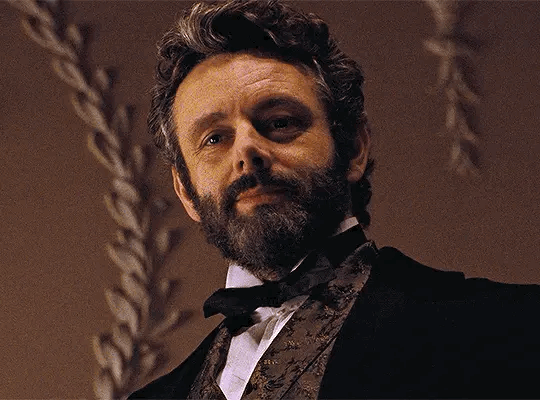






Happiest of birthdays to acting chameleon and Welsh seduction machine Michael Sheen!
#michael sheen#michael sheen's eyes#michael sheen's flawless nose#michael sheen's magnetism cannot be denied#michael sheen filmography#wilde#robbie ross#prodigal son#martin whitly#nero#ancient rome#william boldwood#far from the madding crowd#brian clough#the damned united#tron legacy#castor#zuse#bill masters#masters of sex#will charity#aziraphale#craig fisher#fuck this guy has a bonkers filmography#i could seriously make a dozen of these posts#and still not cover his whole career#welsh seduction machine
47 notes
·
View notes
Text
i've discovered the spiral of falling in love with michael sheen is equally as stomach dropping as the spiral of falling in love with david tennant and now i'm in that same 60 foot hole but miles maitland and robbie ross are dancing around manically with the tenth doctor (alec hardy's just off to the side looking unimpressed)
#this is what im like irl btw#intollerable#this is what happens in hemali's brain#michael sheen#david tennant#miles maitland#robbie ross wilde#wilde#robbie ross#the tenth doctor#alec hardy#bright young things
96 notes
·
View notes
Text

I want to be in that lap so bad girls help
#michael sheen#robbie ross#wilde#welsh seduction machine#look at that man#i have a mighty need#michaelsheendaily
62 notes
·
View notes
Text
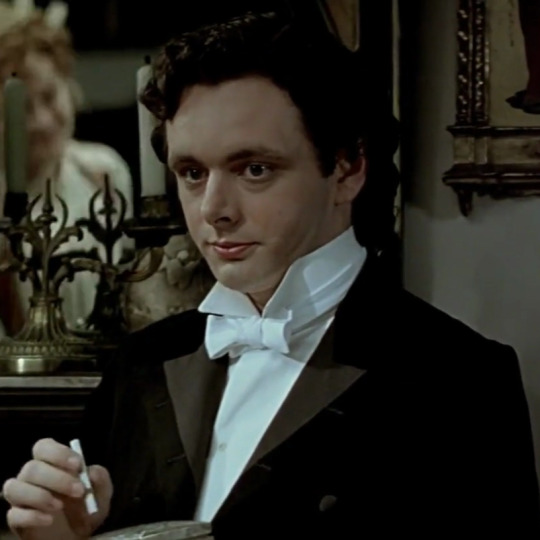

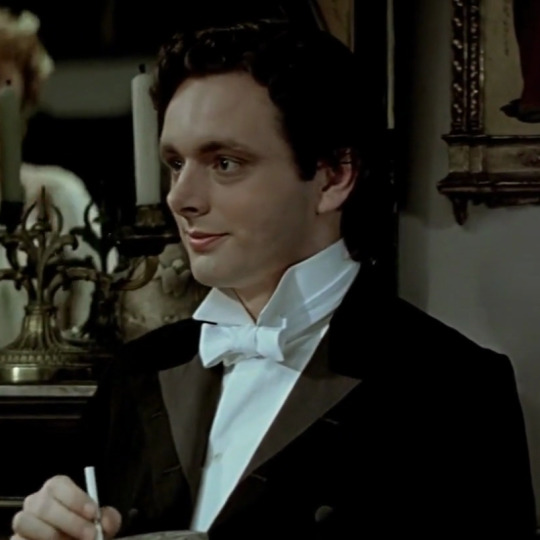
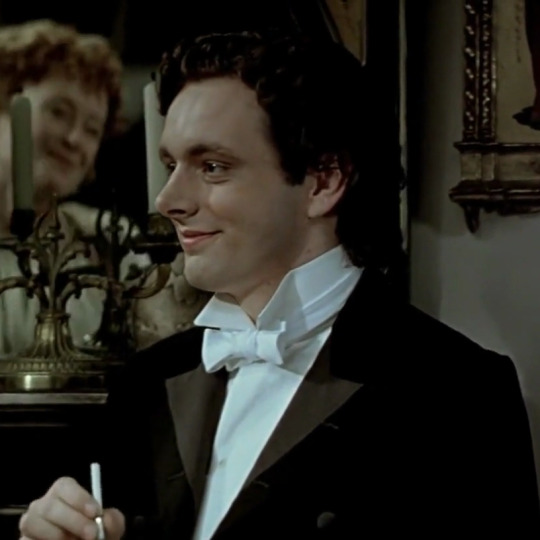

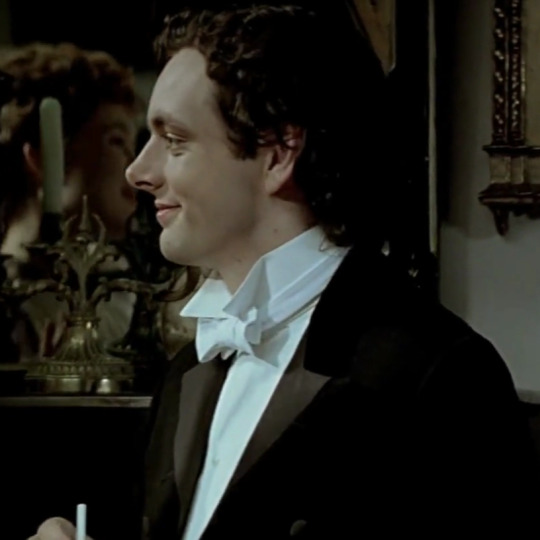
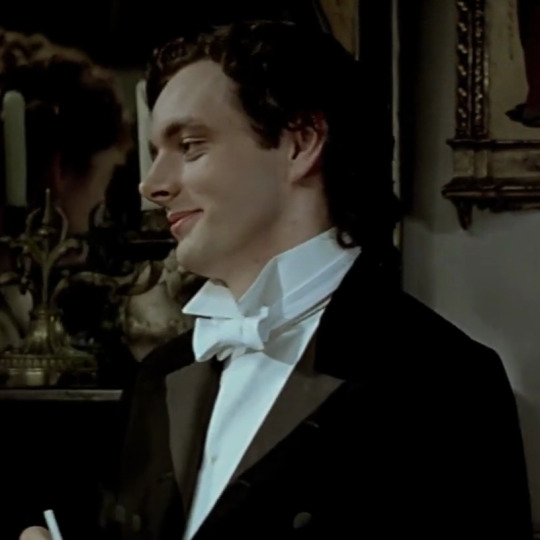

Michael Sheen as Robbie Ross, Wilde (1997) | part 5
145 notes
·
View notes
Text

Oscar was really projecting his own love life on Dorian and I fucking hate it. Justice for Robbie Ross and Basil hallward
#book#book memes#books#literary memes#literature#literature memes#meme#memes#bookblr#lit#the picture of Dorian gray#tpodg#Oscar Wilde#Wilde#Robbie Ross#Dorian gray#basil hallward
45 notes
·
View notes
Photo
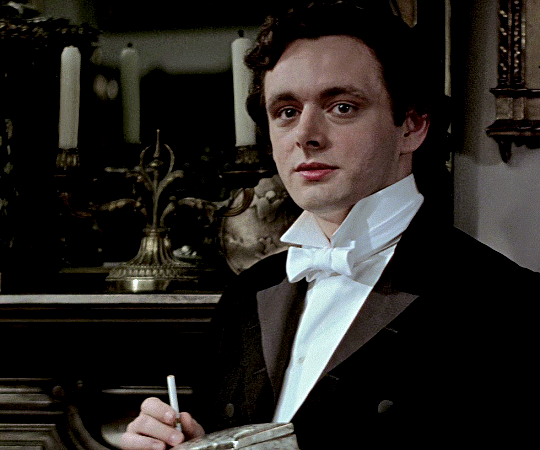
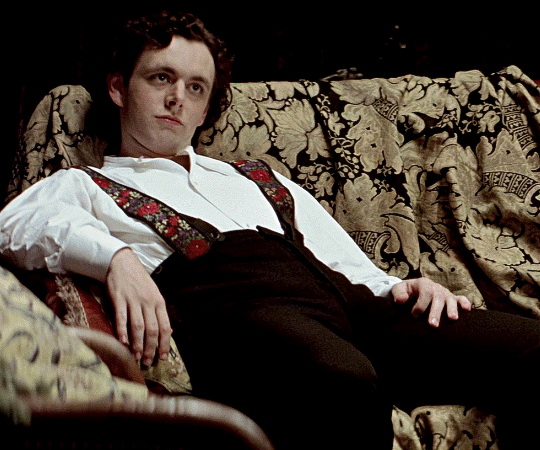

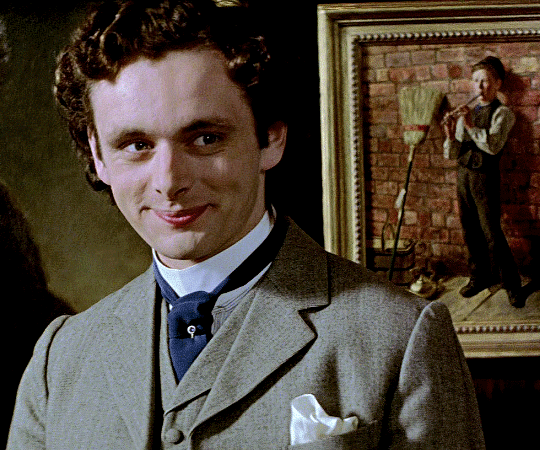





Michael Sheen as Robbie Ross in WILDE (1997)
#wilde#wilde 1997#wildeedit#michael sheen#michaelsheenedit#robbie ross#perioddramaedit#weloveperioddrama#gifshistorical#perioddramasource#filmtvdaily#filmtvcentral#filmedit#userphotoshop#minee#gifset#userrobin#userdyamond#userhallie#userisaiah#robbie ross aka the best historical boi
927 notes
·
View notes
Text
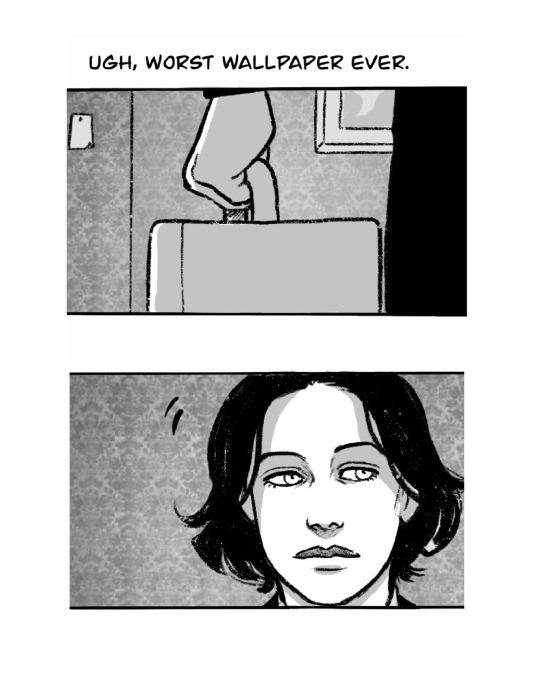

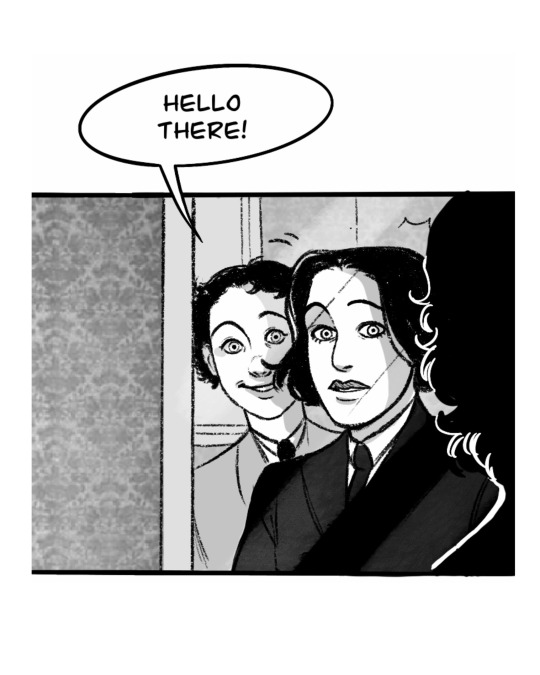


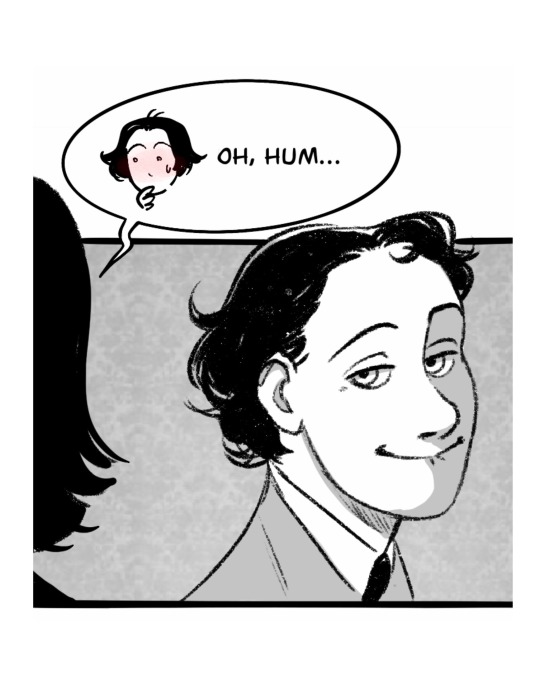

Oscar and Robbie’s first meeting from my ongoing Webtoon “Grey Crow” (episode 2). If you get the wallpaper reference, I love you 💙
read the webtoon here!
131 notes
·
View notes
Text
Just finished watching Wilde (1997) and boy do I feel for Robbie Ross.
He really said ‘let me love and support that artist man with all that I have, even if he doesn’t love me back.’
If you want your relationship to be healthy and long-lasting, get yourself a man like that.

#jfc#i am having feelings#oscar wilde#wilde 1997#robbie ross#my babe#michael sheen#stephen fry#jude law#i don’t know anything about Wilde’s life but if this is true then he treated Robbie like garbage#man why u gotta take the boy for granted like that. he was the one tending to ur wounds when u we’re bleeding. not Bosie#get your shit together#this man also clearly was polyamorous and I am HERE FOR IT#llved the wife and kids. didn’t know he had actual offspring either.#bisexual disaster#love love love it
32 notes
·
View notes
Text

This might have been the first time Michael kissed a man, and also the first time he had a sex scene, on screen.
In real life, I think it’s a different story altogether, and we love him for it.
#michael sheen#robbie ross#Oscar Wilde#aziraphale#good omens#ineffable husbands#good ineffable omens#good ineffable husbands#welsh seduction machine#he’s the biest boy in the village#he’s about as subtle as a llama on skates#michael is about as subtle as a drunken llama on roller skates#we love Michael Sheen
135 notes
·
View notes